Let me be frank here. I hate visiting museums. Or any other government run archeological or historical sites for that matter. And this is not because relics aren't my cup of tea;au contraire, I am a huge history buff. I love reading up on anything that has a significant history or biography, and I can watch History channel or National Geographic for hours.
The reason why I don't like visiting such places is because I am a Northeasterner.
We're always told to pay the foreigner's fees at such places (which is usually around 10 times more than what Indians are charged), and even if we tell them we are Indians, they will be satisfied only if we show them our passports or other IDs (and yes there had been instances where they weren't convinced even after passports were shown). At the same time, somebody from Pakistan or Sri Lanka etc can just walk inside without even being asked to provide identification.
Anyhoo, I am not trying to stir up a controversy with this post. Having lived my life outside Mizoram, I kinda see some reasoning into why people get racially profiled, not that I'm saying I support it. Even in Mizoram which has an ILP (Inner Line Permit) requirement, non-Mizo government workers and residents who do not require an ILP are occasionally still asked at the airport to show proof that they don't require an ILP, whereas somebody from Nagaland or Manipur could very well walk past the security counter without being stopped, even though they must have an ILP to visit Mizoram.
So yeah, shit happens :) It's best to deal with it and move on, or else we'll just turn bitter the more we think about it.
And that is why I don't like to visit such places. But recently, my mom and niece were in town, and they wanted to visit some of the historical places in Pune.
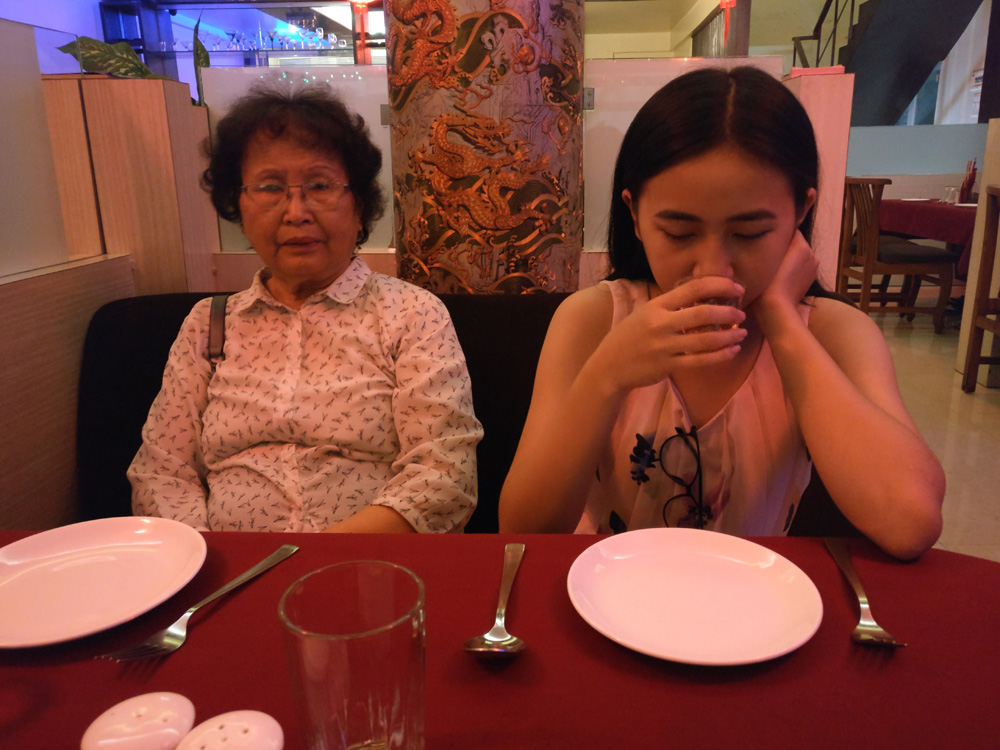
I'm so proud of my niece who is becoming just like me, always taking photos of her food :D
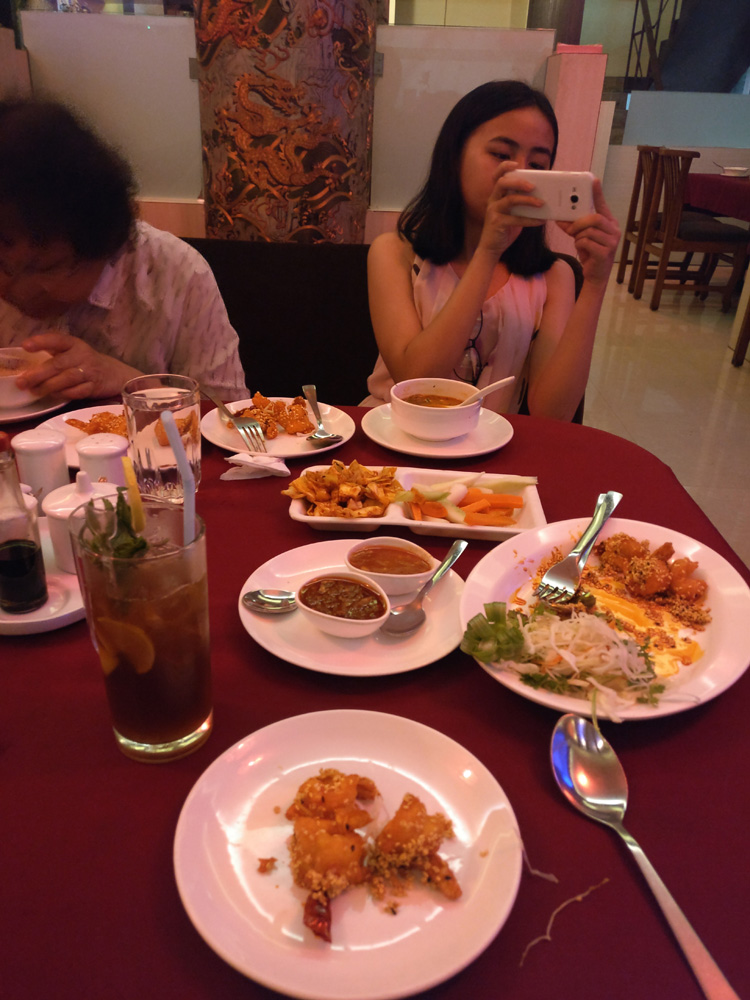
My niece wanted to visit a museum, and so there I was, asking my colleagues which is the best museum to visit in Pune. Aga Khan Palace was the first name my friends suggested, but then other people said the only thing to see there apart from the beautiful architectural design is just Gandhiji's glasses.
I'm sure my mom and niece didn't come all the way from Mizoram just to look at our Mahatma's glasses :D Anyway I wanted to show them more of this Maharashtrian culture and history, something that I have associated with and come to love after living in this state for nearly 10 years now.
My colleagues suggested "Raja Dinkar Kelkar Museum" immediately.
And so I applied for leave and took my mom and niece to Raja Dinkar Kelkar museum, located at Shukrawar Peth. And yes, as expected, the officials at the gate told us to pay 200 bucks each instead of 50 for the entry fee (50 for Indians, 200 for foreigners). I told them we're Indians and they looked at us in disbelief, so I sheepishly showed them my passport.
After realizing we were Indians, they told us to pay 50 bucks each for the entry, and then they told us to pay additional 100 bucks each for our mobile phones, at which point I lost my cool and went into a rage, even uttering some unfortunate Marathi cuss words at them (thank God my mom didn't understand Marathi :D ). They calmly showed me a board which stated that photography is allowed by paying a fee, which includes 100 bucks for mobile phone, 500 for a DSLR camera and so on. That was soooo embarrassing! :D
See, this is the result when one is a frequent victim of racism or being taken advantage of just because of our different looks - we sometimes tend to think everybody's trying to do that to us. I seriously thought they were trying to rip us off because we didn't "look Indian" enough.
I grinned apologetically, and I think they understood where my rage was coming from, because they charged us for only 2 mobile phones even though we had three. They turned out to be nice people after all :)
And so we entered the esteemed Raja Dinkar Kelkar museum.
The rest of the post below is laden with photographs, all taken using my Oneplus 3. Feel free to click on them to enlarge to a new tab, though I have reduced the size to max 1000px each so as to save you some bandwidth.
The first room we entered was at the first floor. I didn't take a photo of what each floor was exhibiting, but I think this floor was about beauty and cooking utensils.
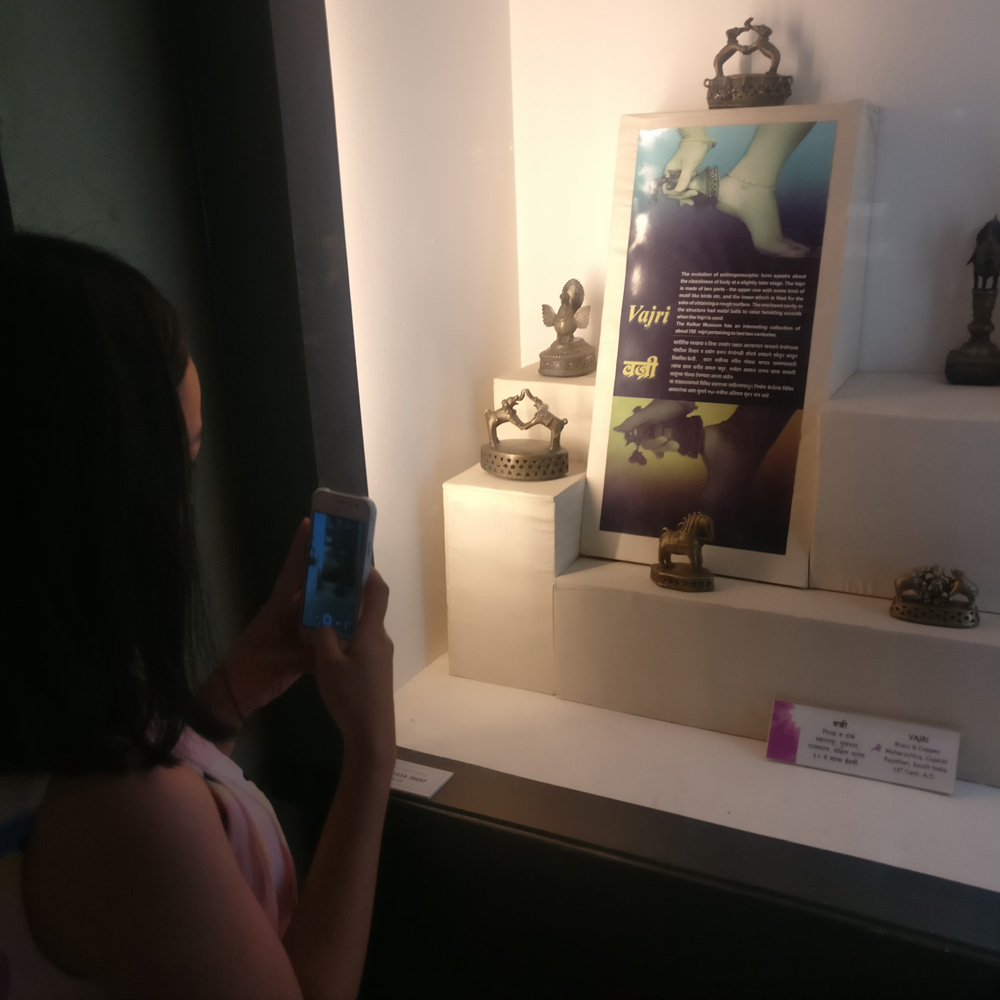
Above is an appliance women used to clean and smoothen their heels :) See, the 18th century woman had charm! 18th century woman was bae :)
And below are various perfume containers.
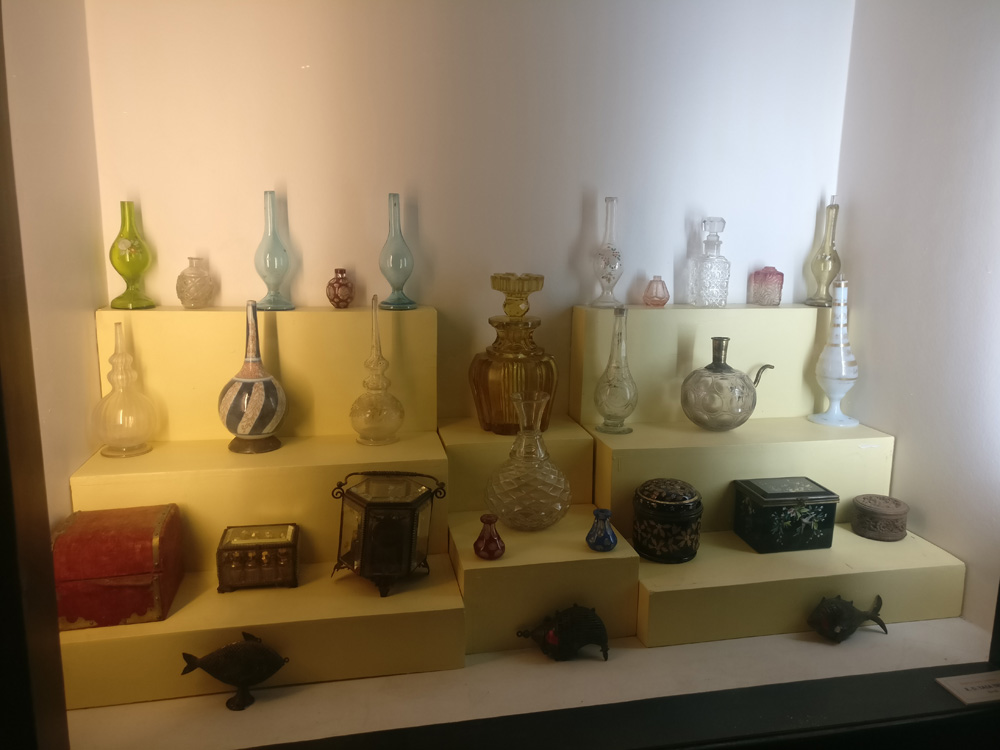
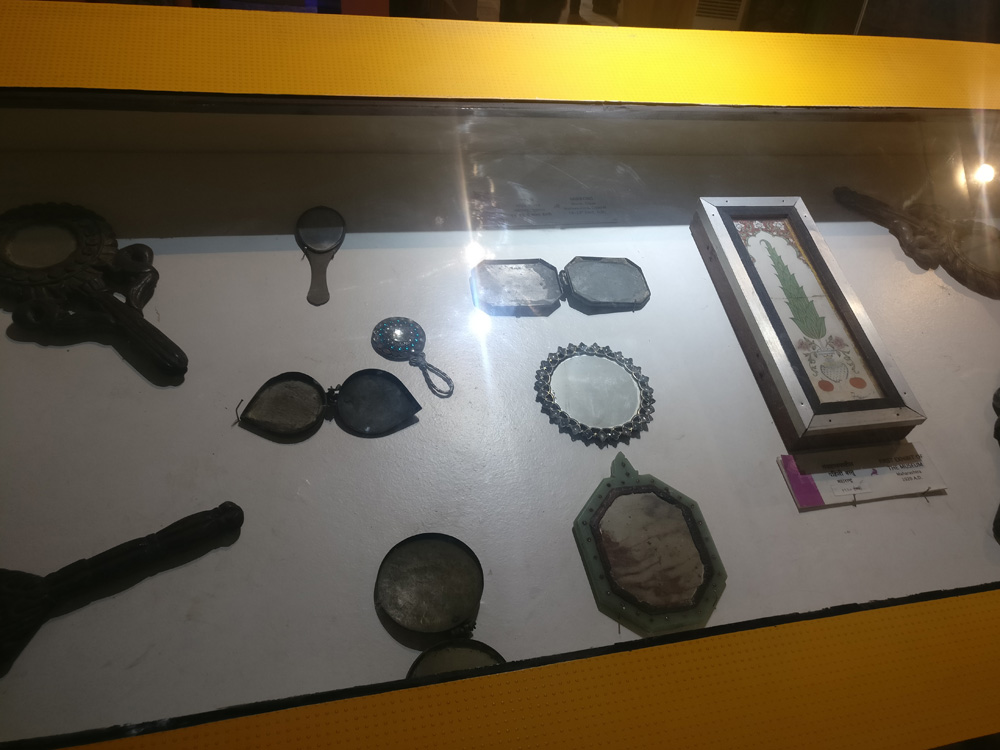
Mom reading details about the mirrors used in that era.
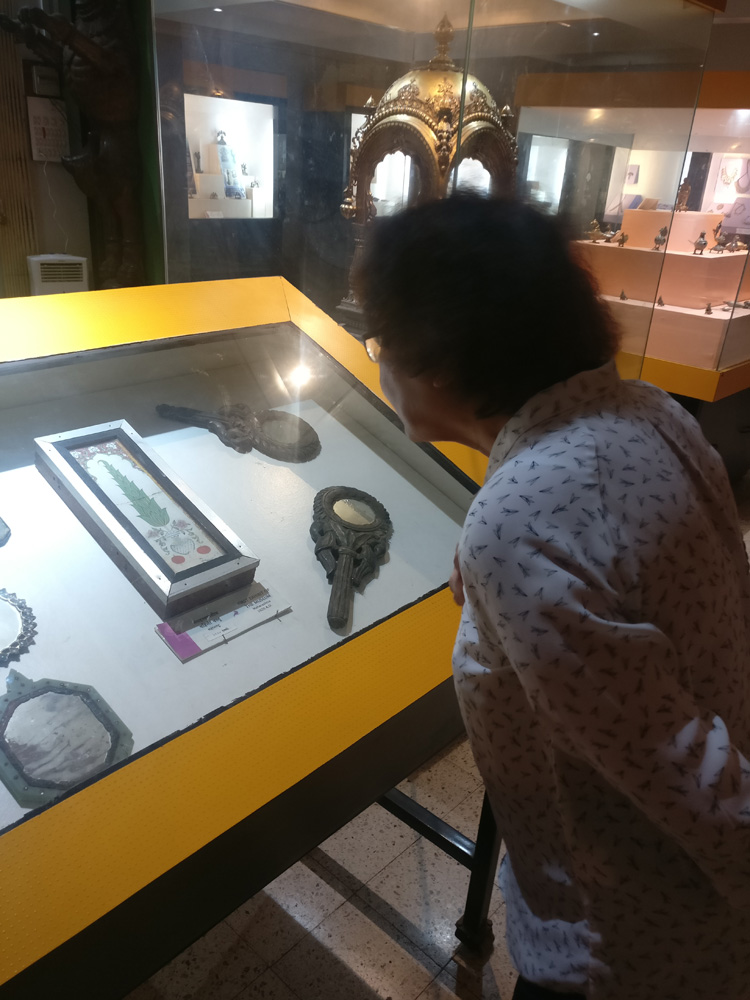
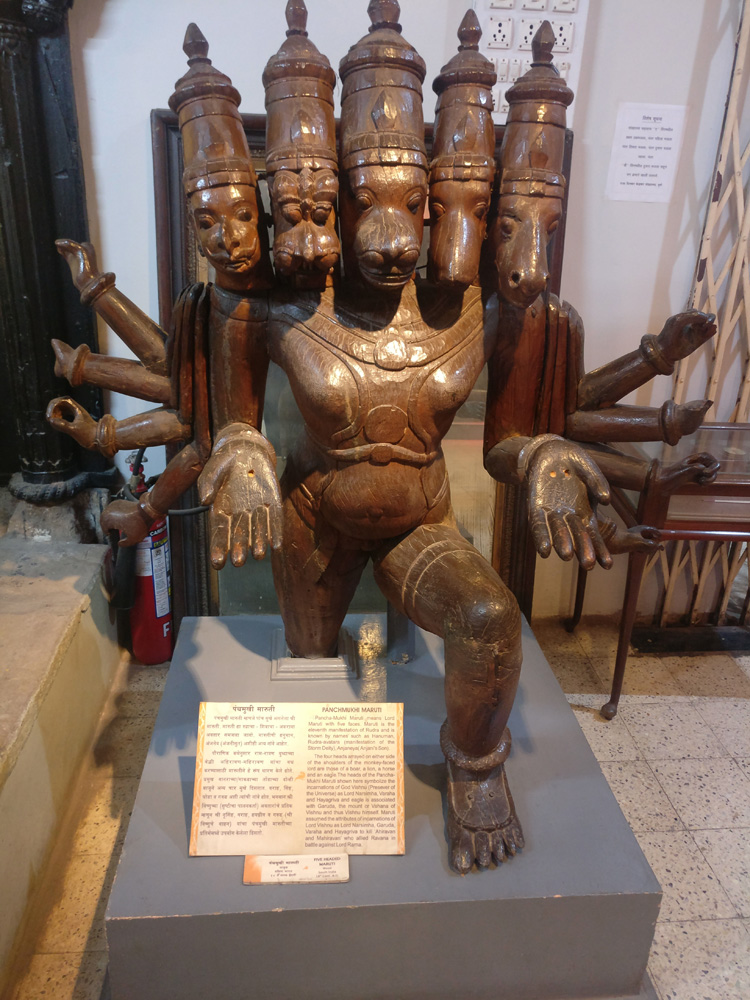
Above is a wooden sculptor of Pancha-mukhi Maruti (Lord Maruti with five faces), and below is a "wheel of zodiac signs" made of wood and brass.
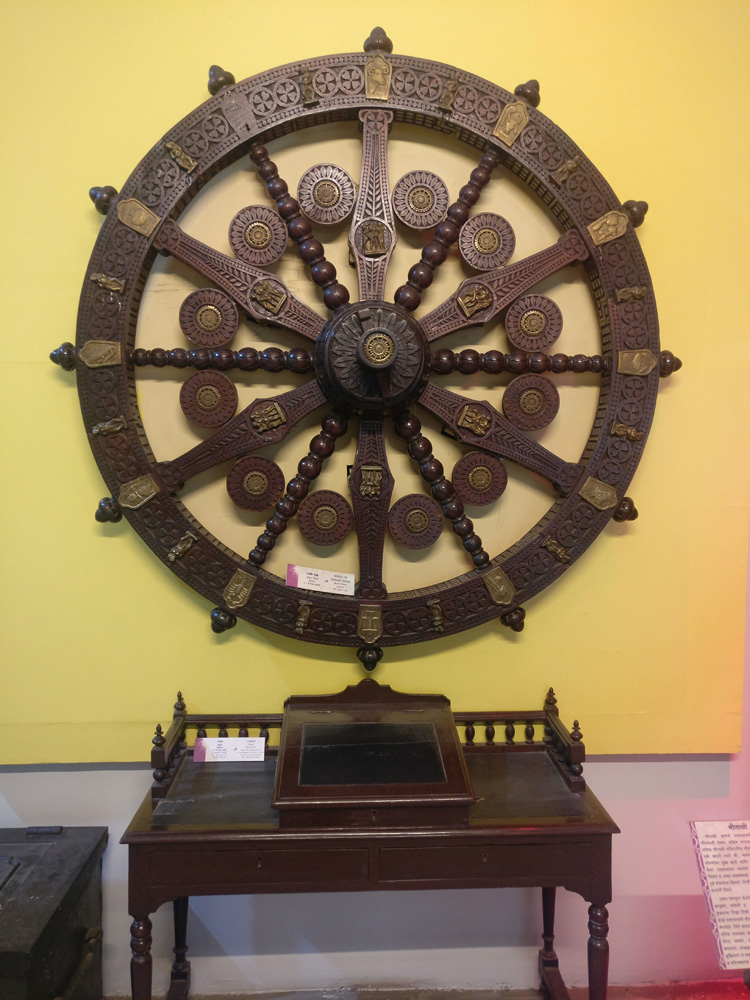
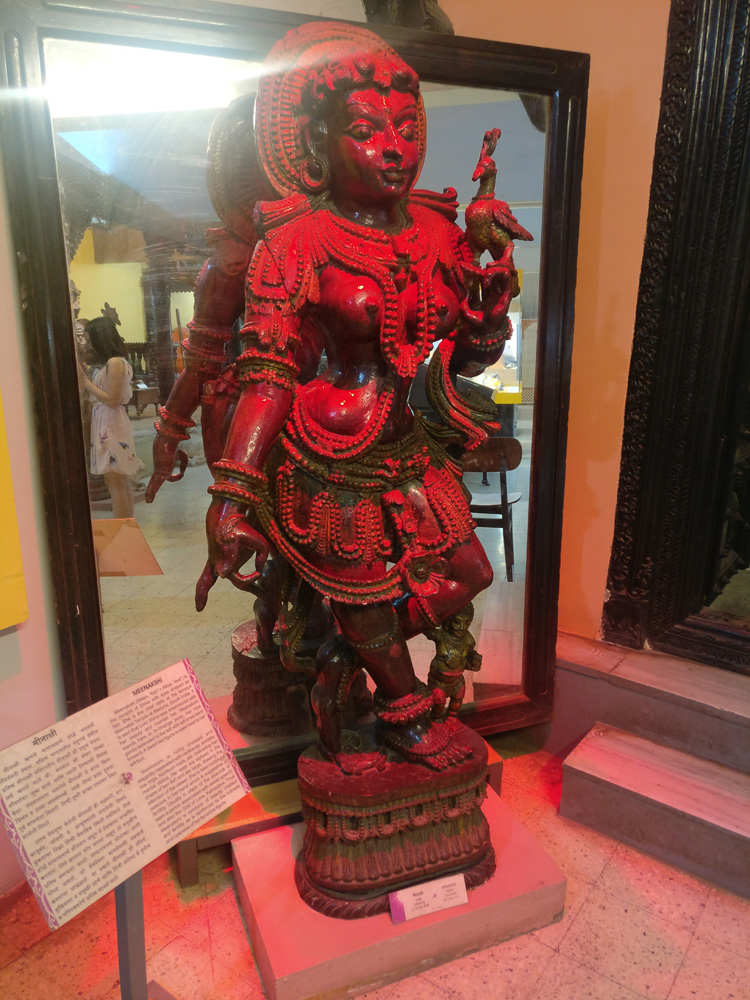
My niece posing with a statue of Meenakshi, the chief deity at the famous Meenakshi Temple in Madurai. Good to see a mix of Tamil artifacts in this museum.
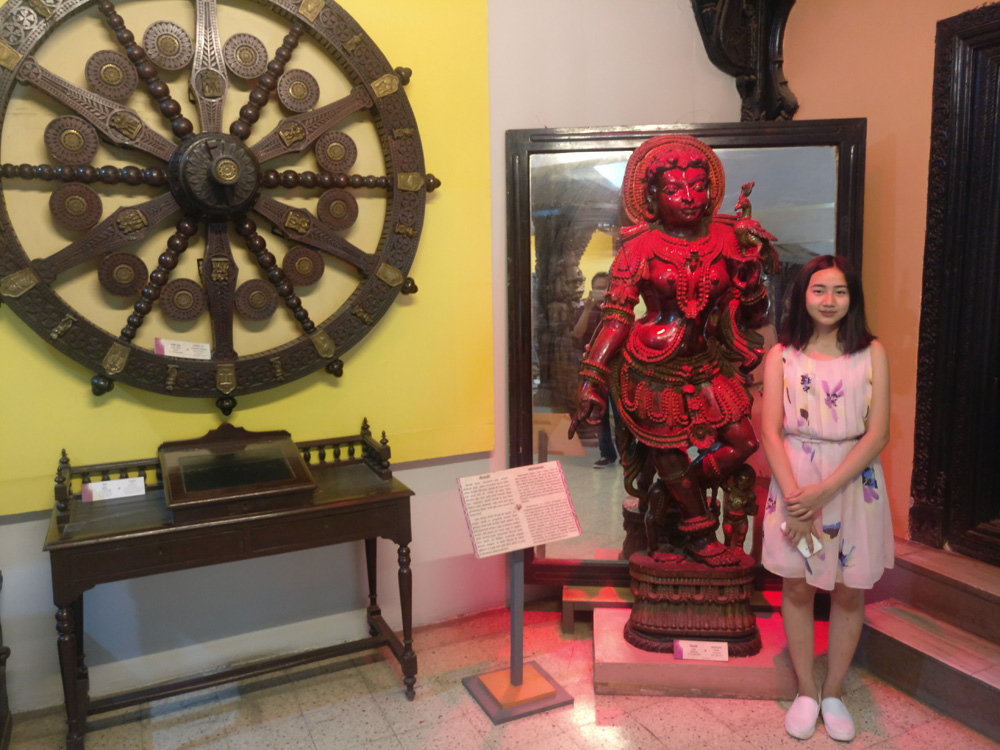
Below are some 18th century hair dryers, made of iron and brass. I think the women of those days used to comb their wet hair with this until it gets dry (I'm not exactly sure how it works).
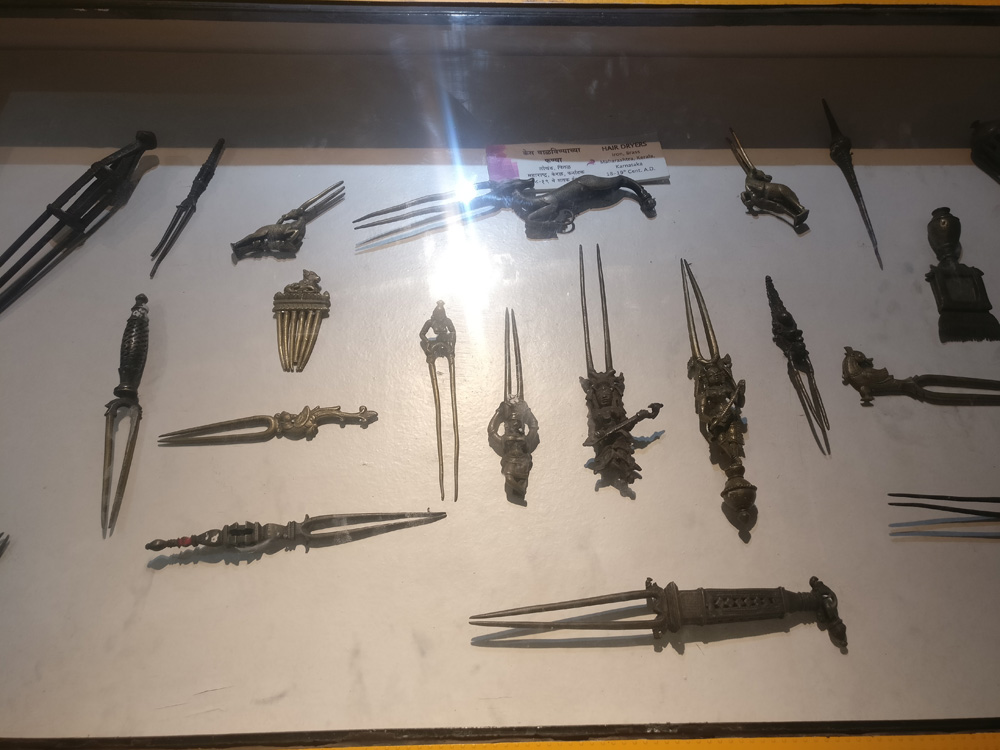
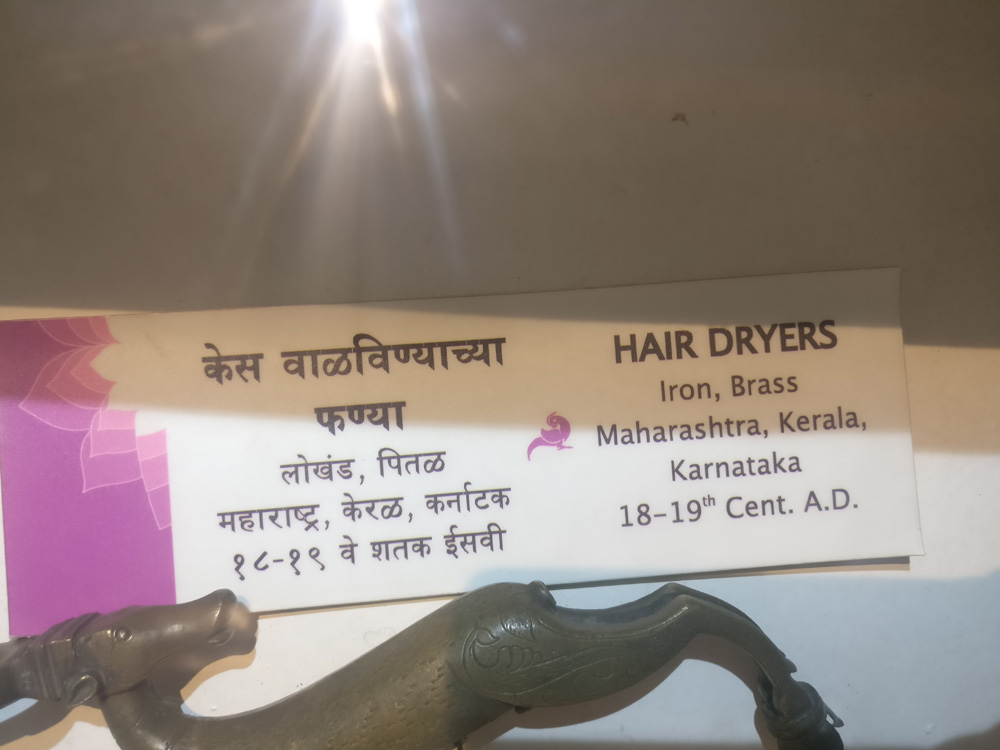
Mom as usual trying to read the descriptions of each display, which were a bit too small for her aging eyes. :) This is a statue of Mahishasurmardini, the slayer of the buffalo demon.
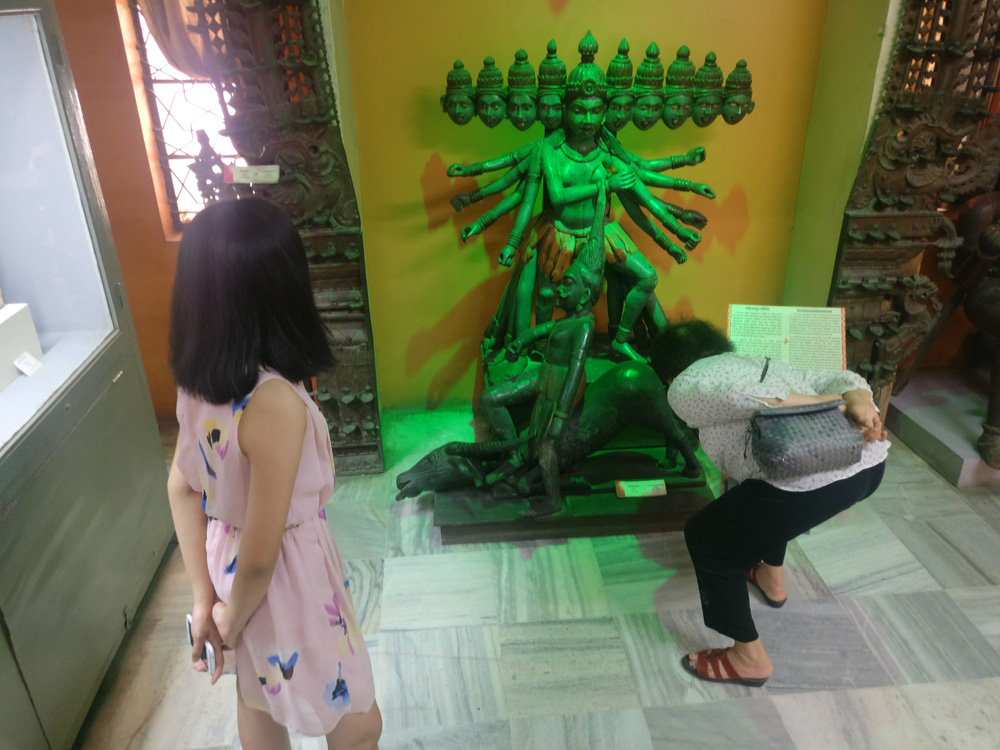
Mom and niece posing with wooden statues of people from the 18th century. Great piece of carving indeed.
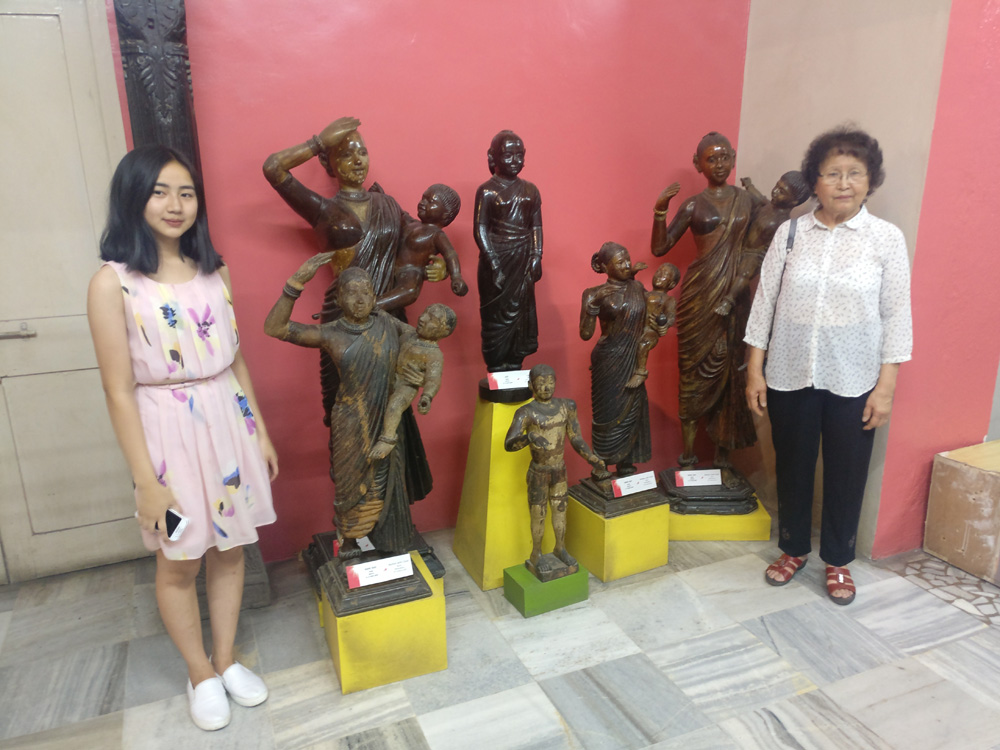
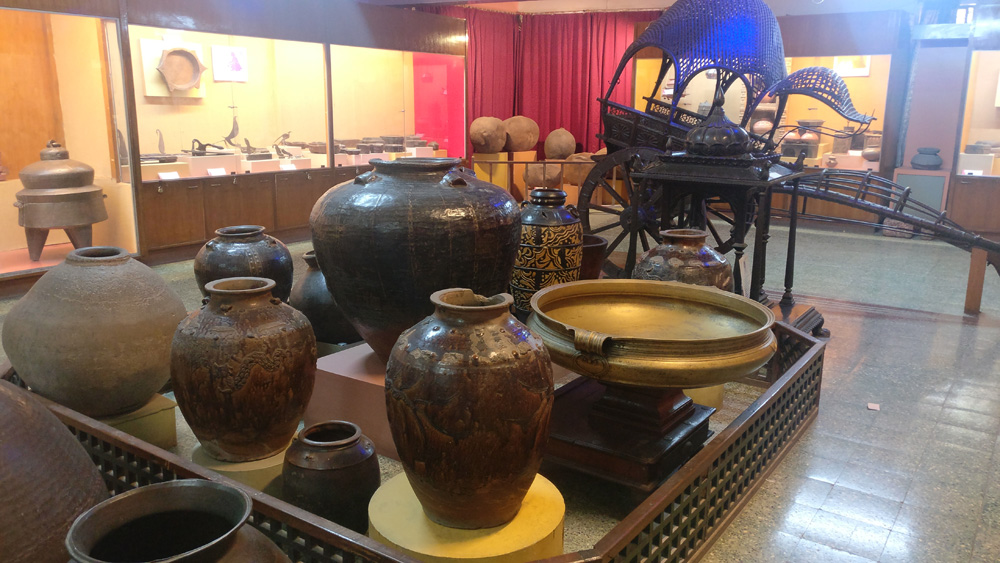
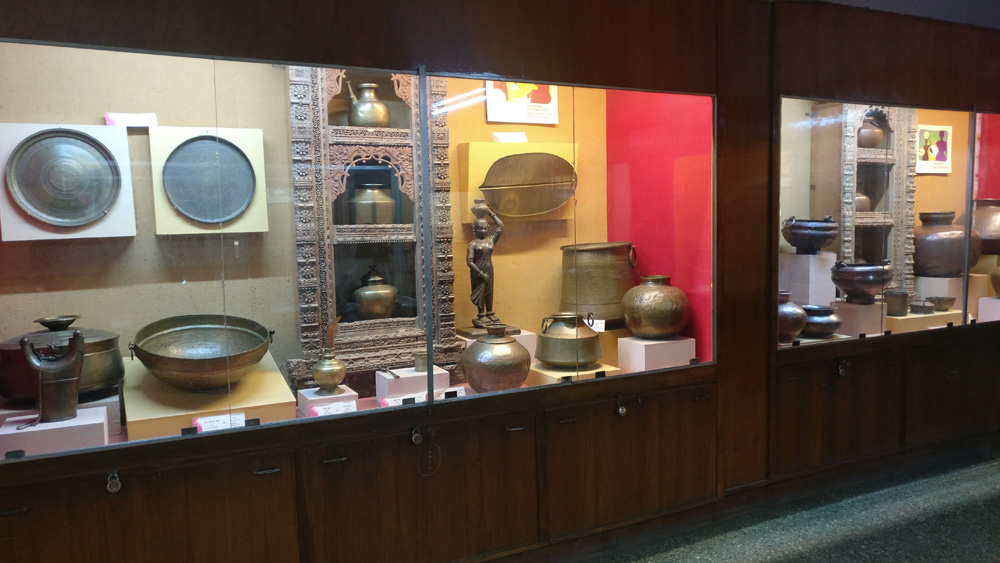
Below are some roti makers, lemon juice squeezer and rolling pins. Can't believe they had all these in the 18th century. They look even better than the ones we get at a supermarket today!
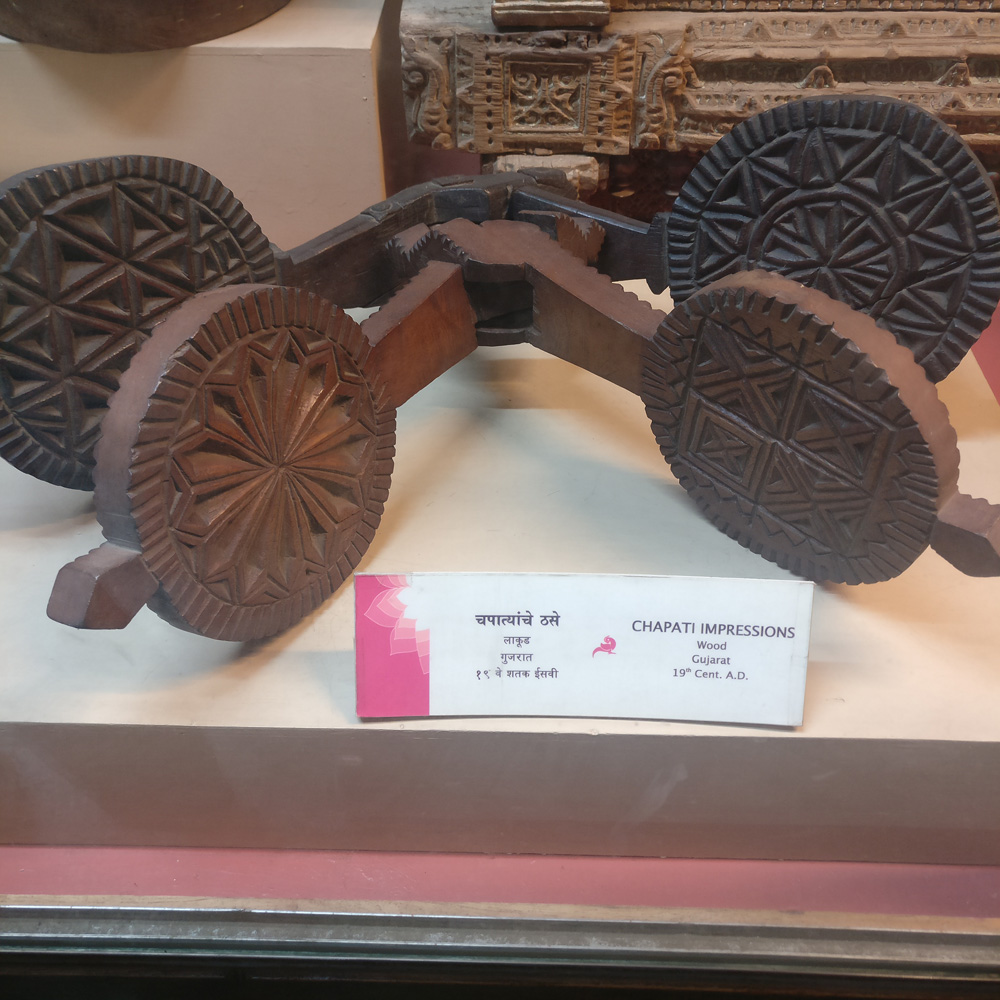
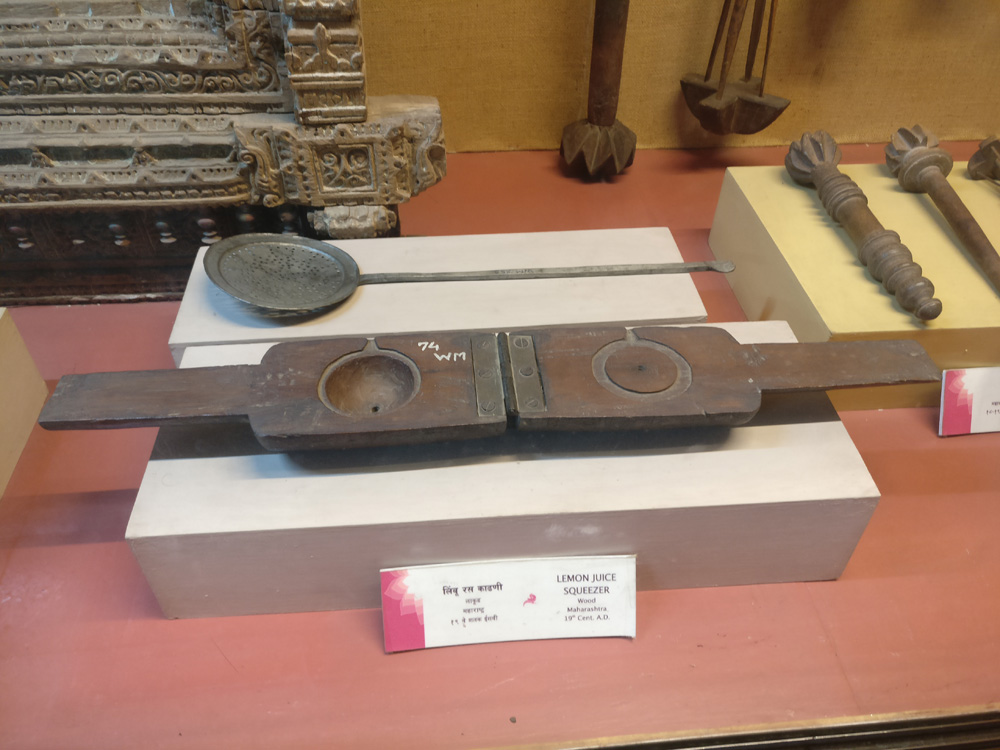
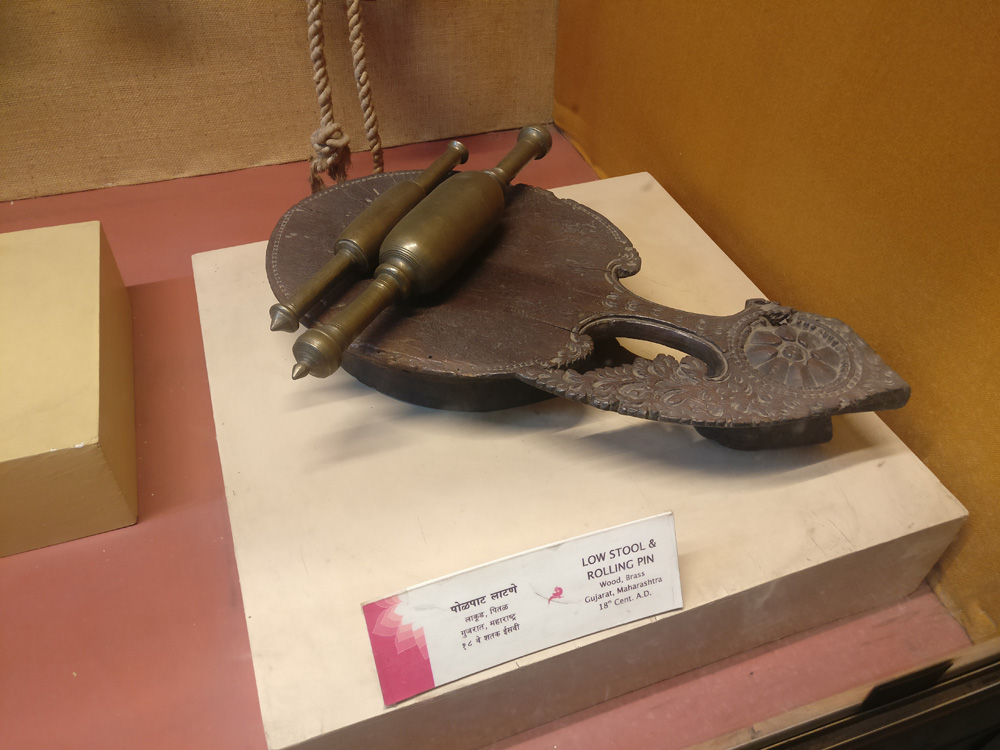
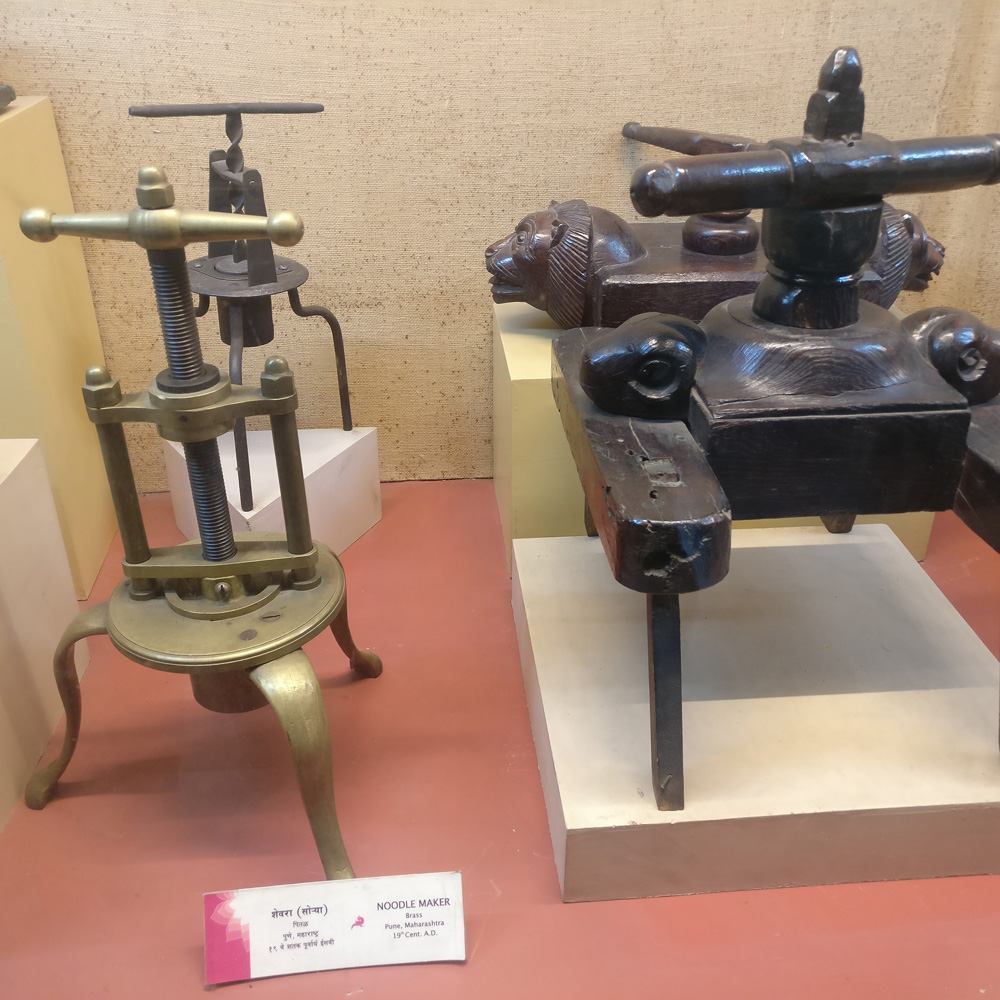
19th century noodle makers and perforators! Wow. Who would have thought noodles were a big thing in Pune in the 1800's!
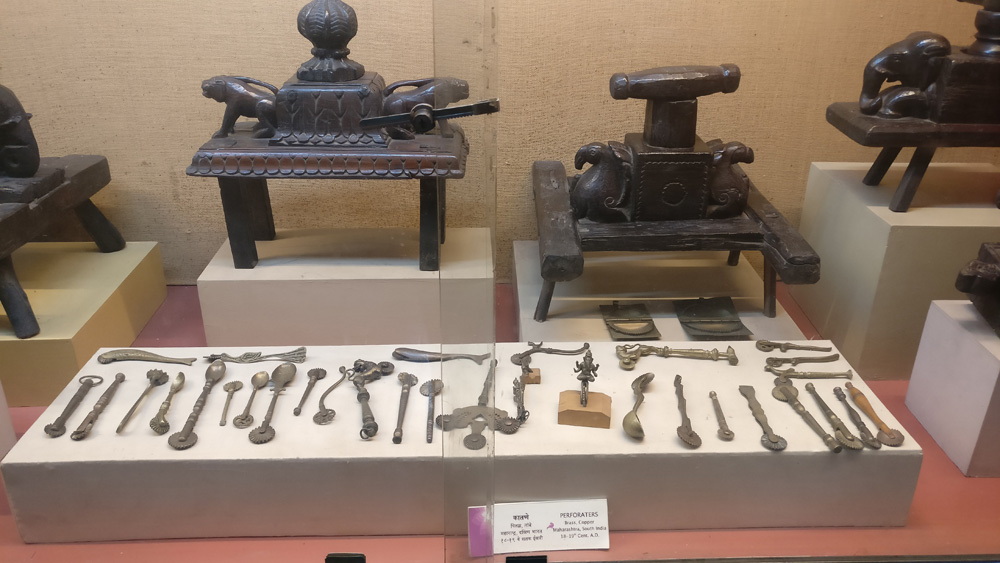
This badass looking appliance below is a coconut grater. I'm not exactly able to visualize how it would function, but it looks cool nonetheless.
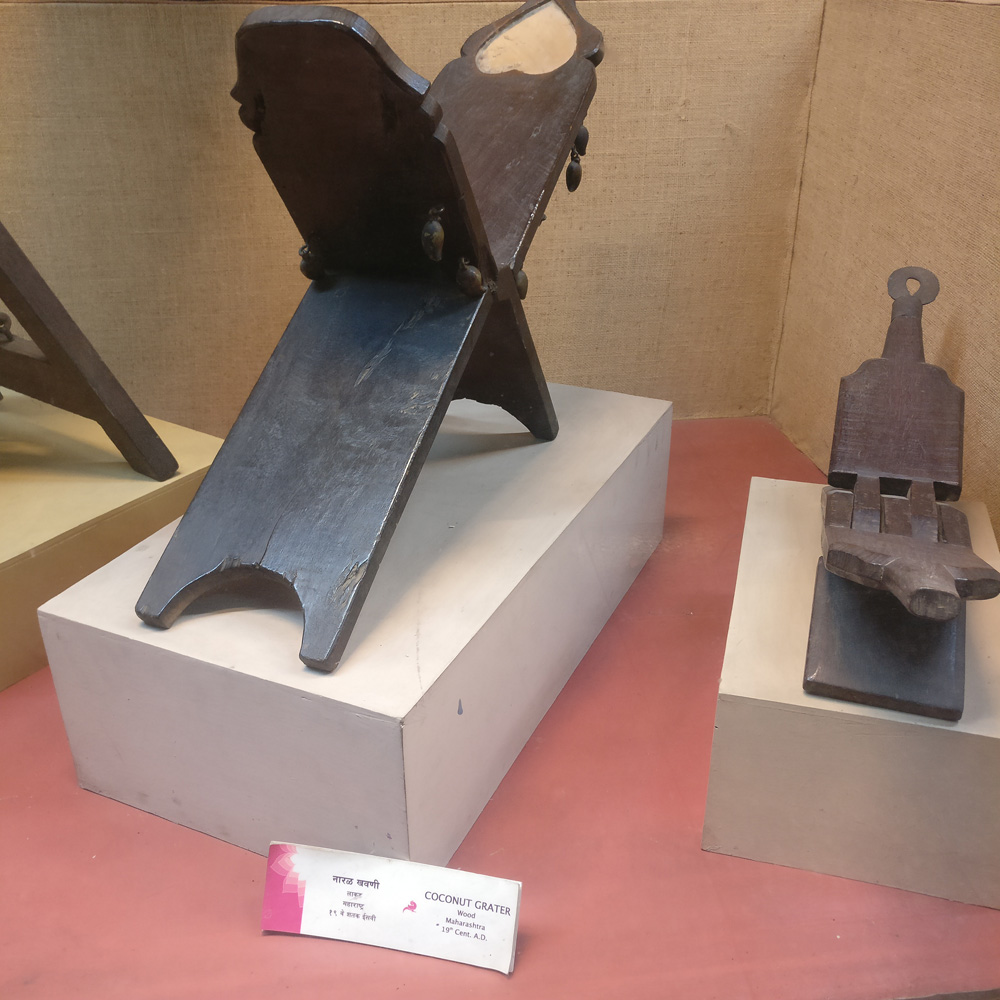
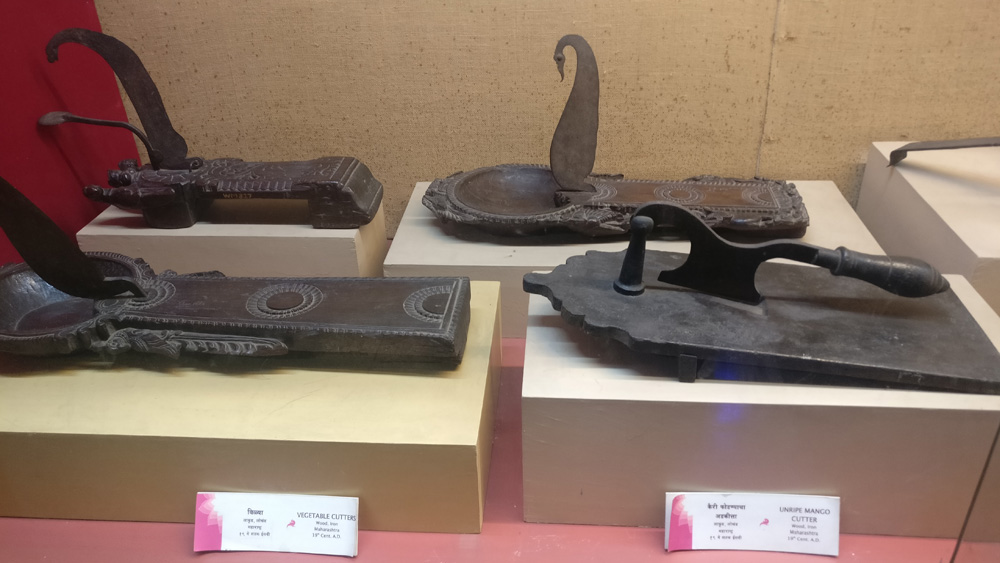
Again, what you see above are vegetable cutters and unripe mango cutters, all looking much more cool than the ones we have today.
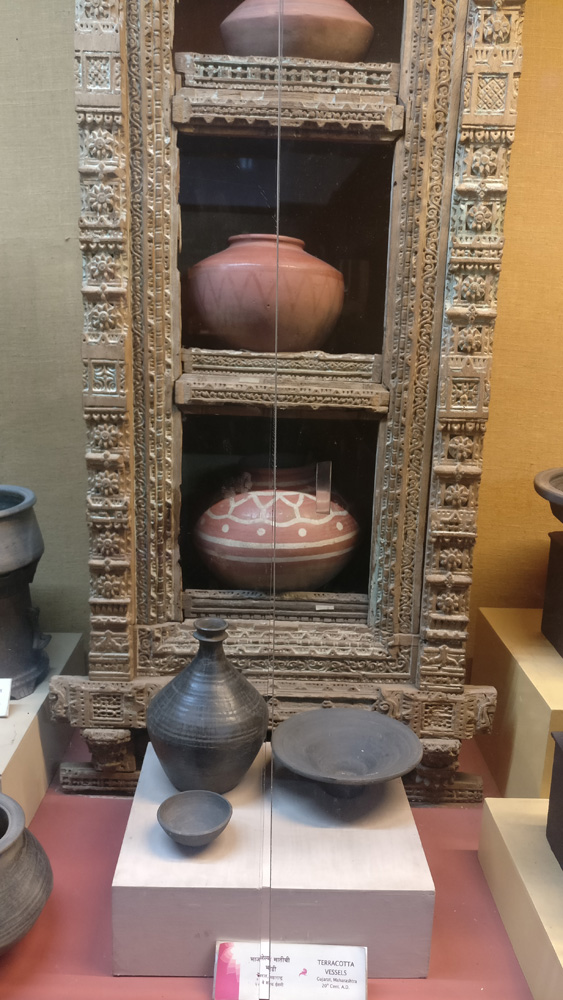
Some kilns and hot water vessels.
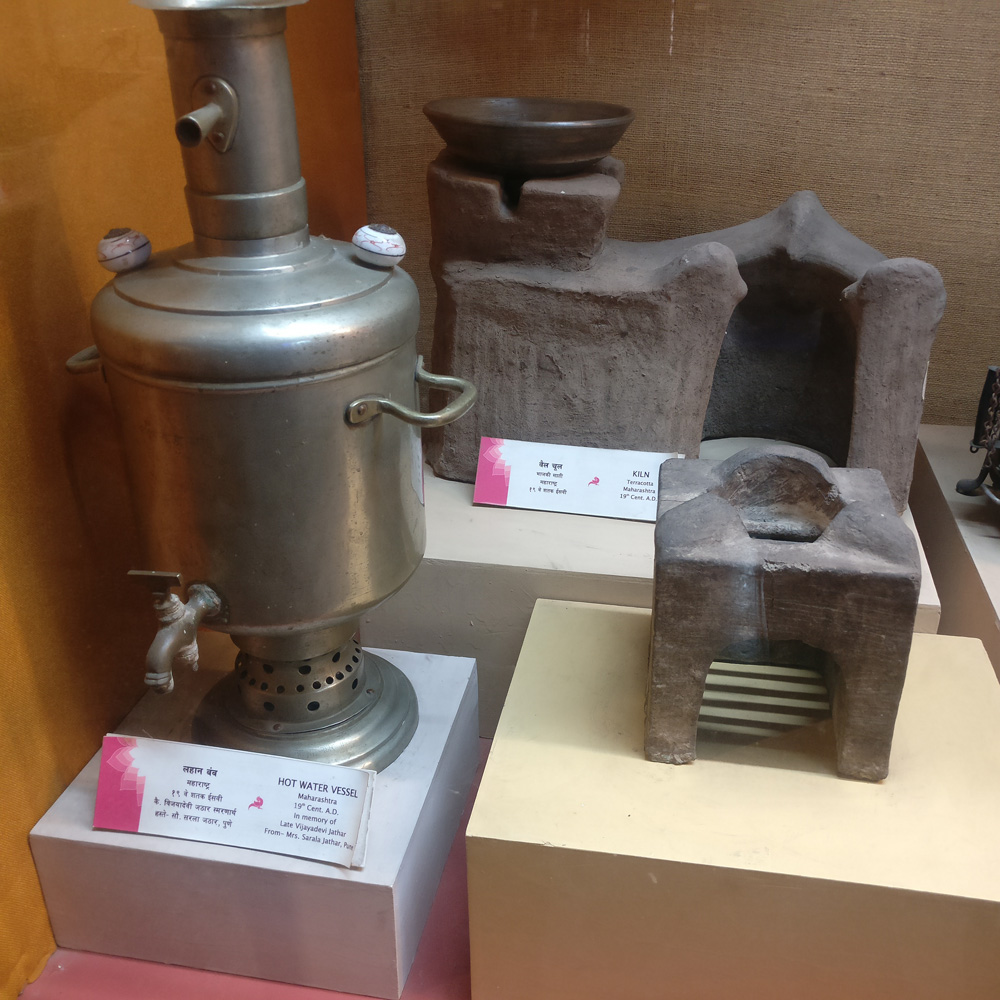
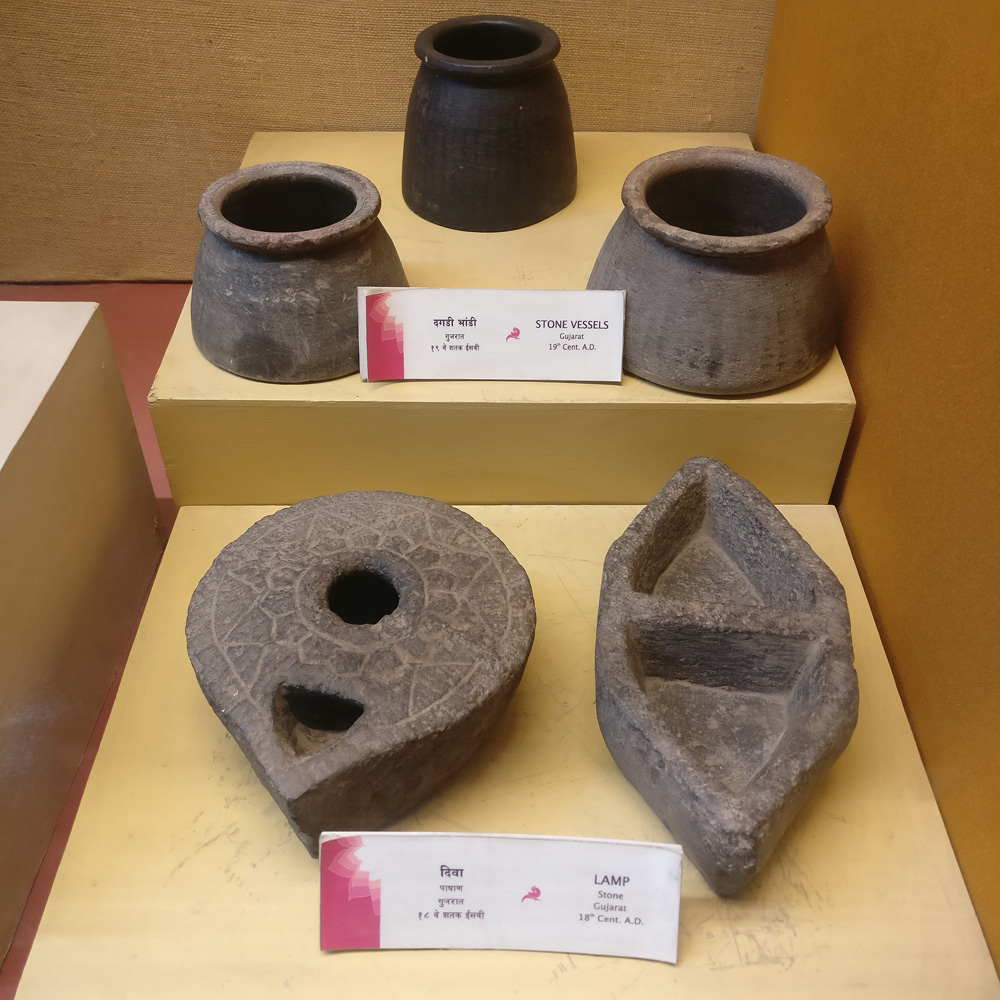
I love the appliance below. It's not just a herb grinder, it's a stone grinder dedicated exclusively for "intoxicating" drugs! :D
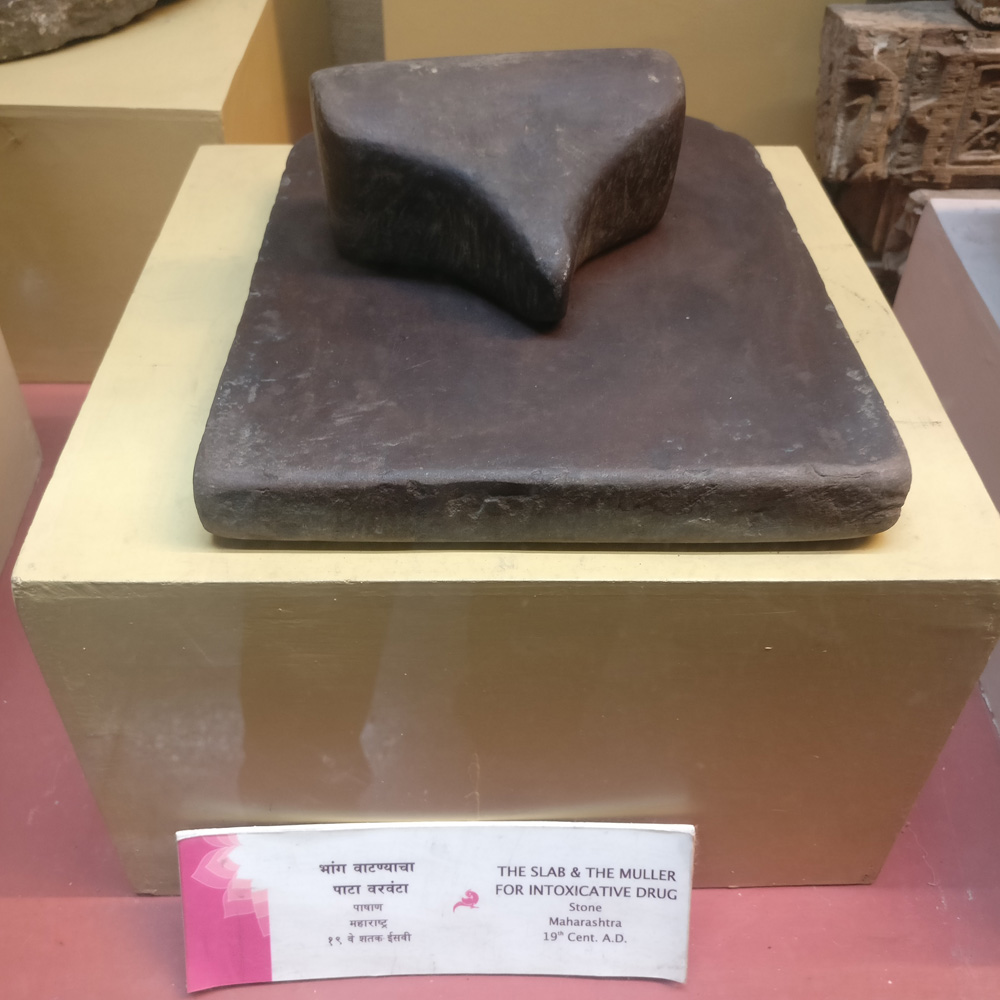
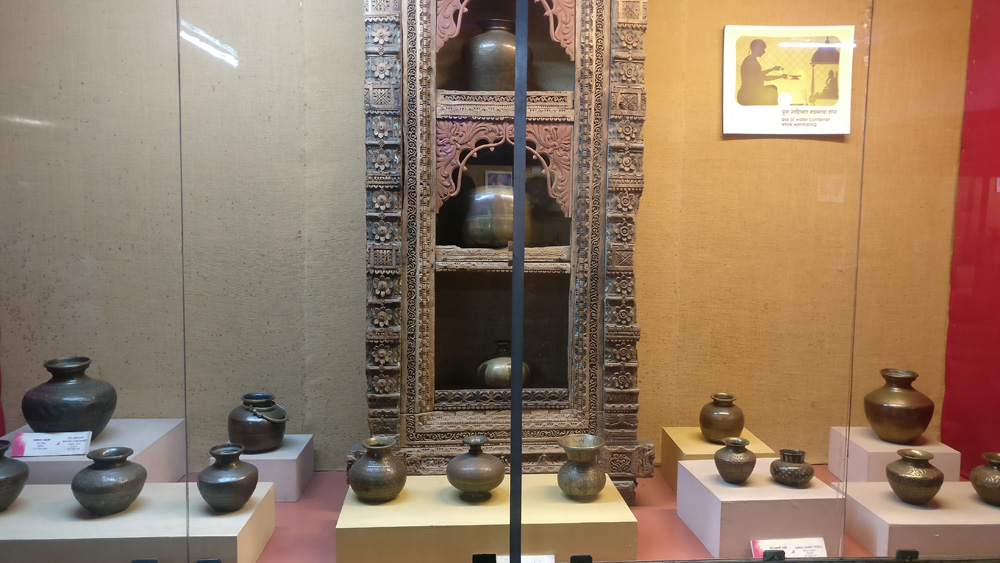
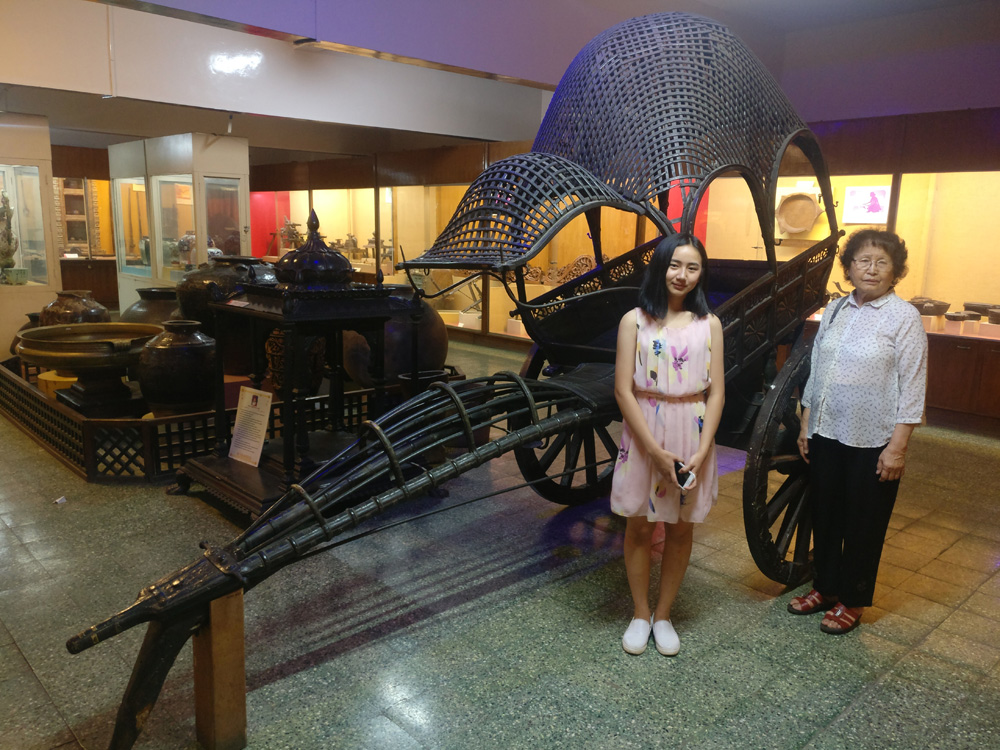
So after we were done exploring the wonderful first floor showcases, we were told to go to the third floor first before entering the second floor.
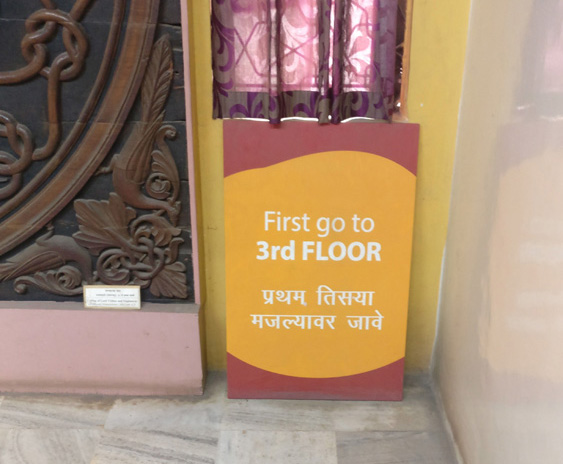
I thought there was something on the second floor that would make sense only if we go to the third floor first and see certain items… but, it wasn't because of that.
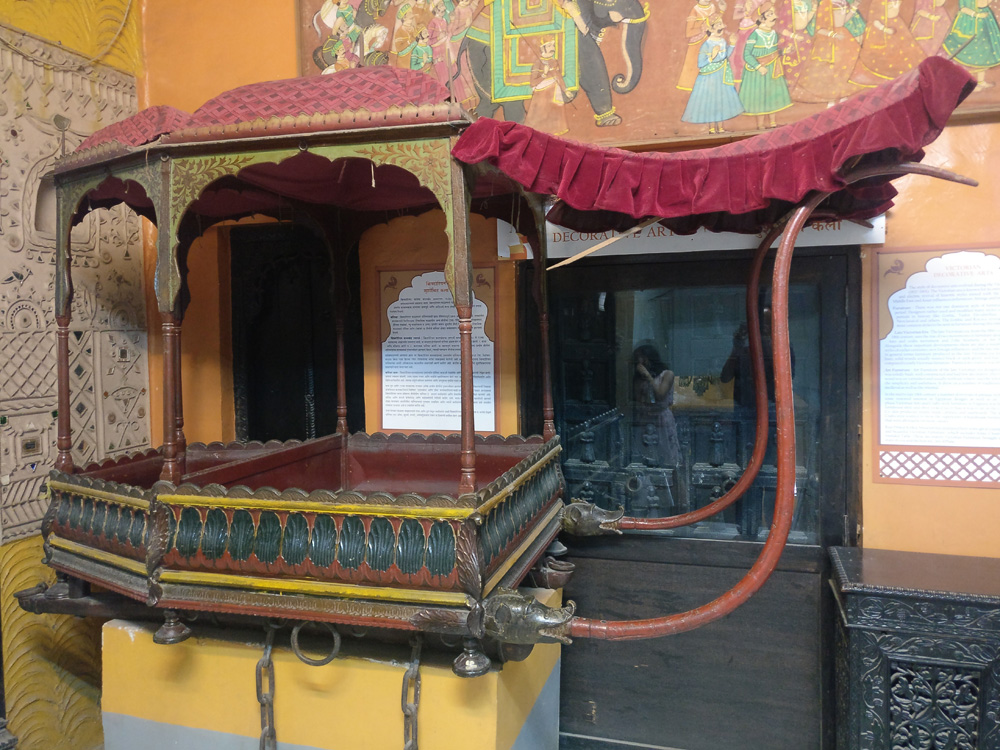
The third floor was a big disappointment. It showcased the military items, something that I'm greatly interested in, but unfortunately there was some sort of renovation going on, so we could only look at the displays from a distance. Grrrrr…
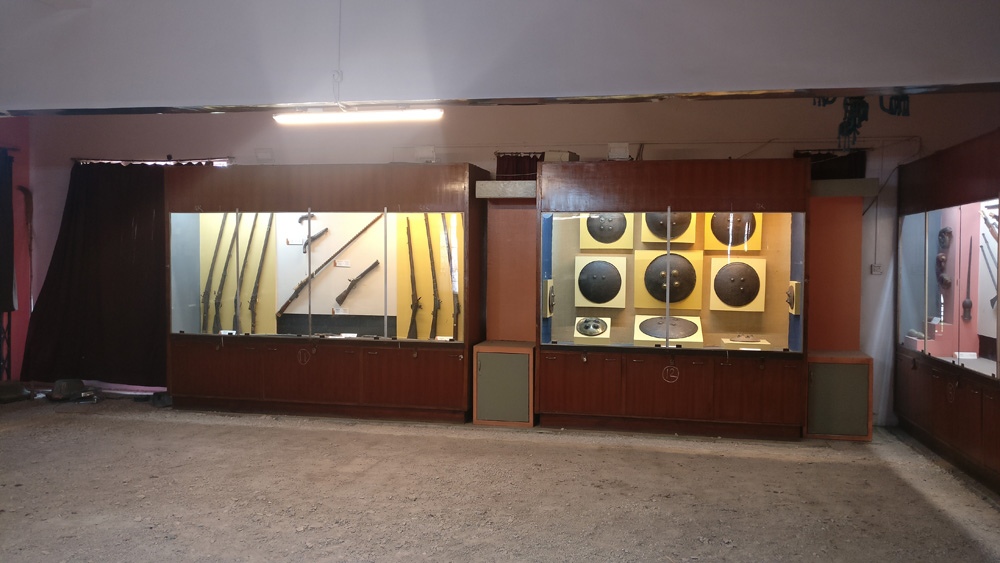
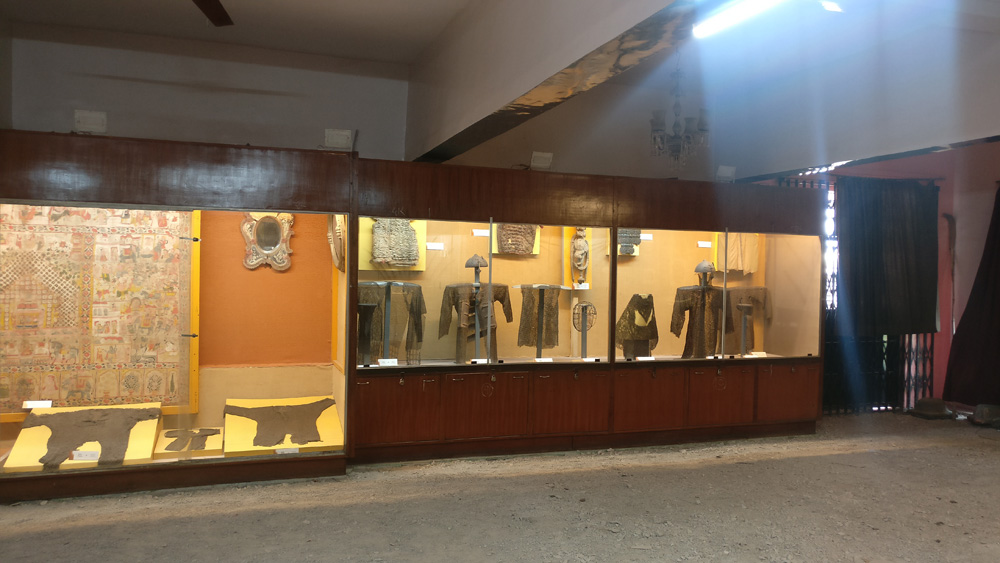
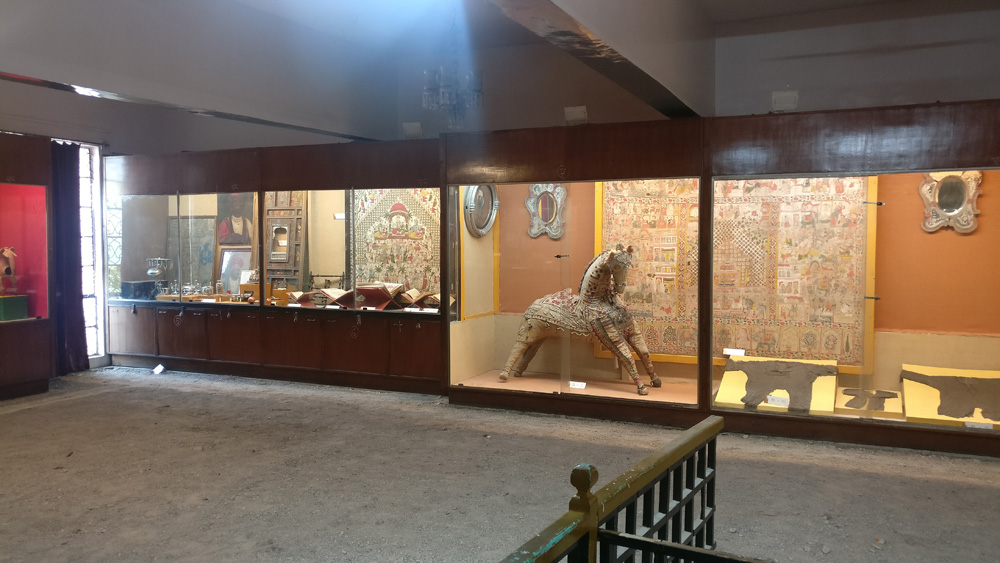
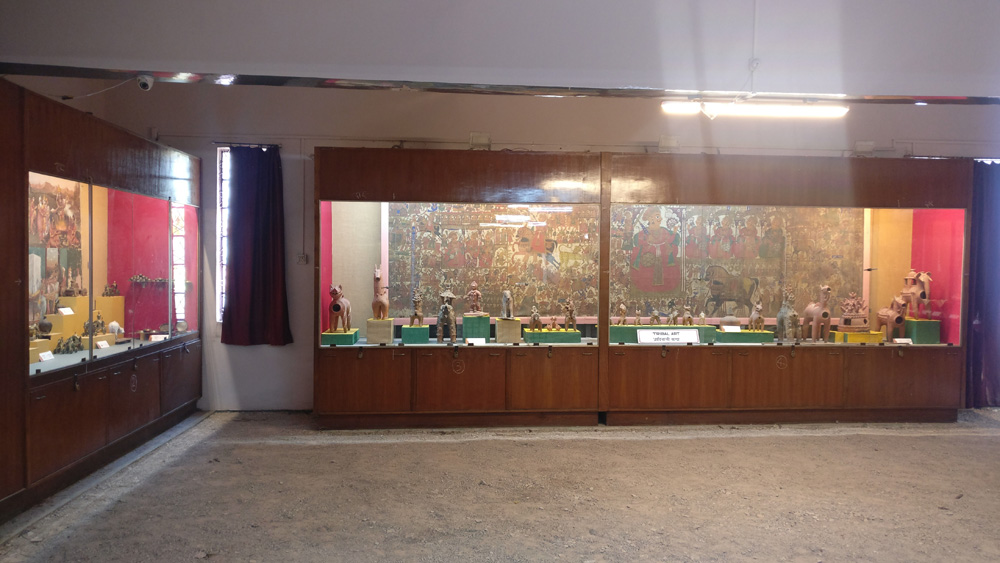
After that we went down to the second floor, which had handlooms and crafts on display.
Ok the reason why we were told to go to third floor first before entering second floor was because the second floorA-wing connected to the adjoining second floor B-wing which would take us out to the exit below. People going inside second floor first would most likely not go back to the third floor, hence the reason why we were asked to go to the third floor first :)
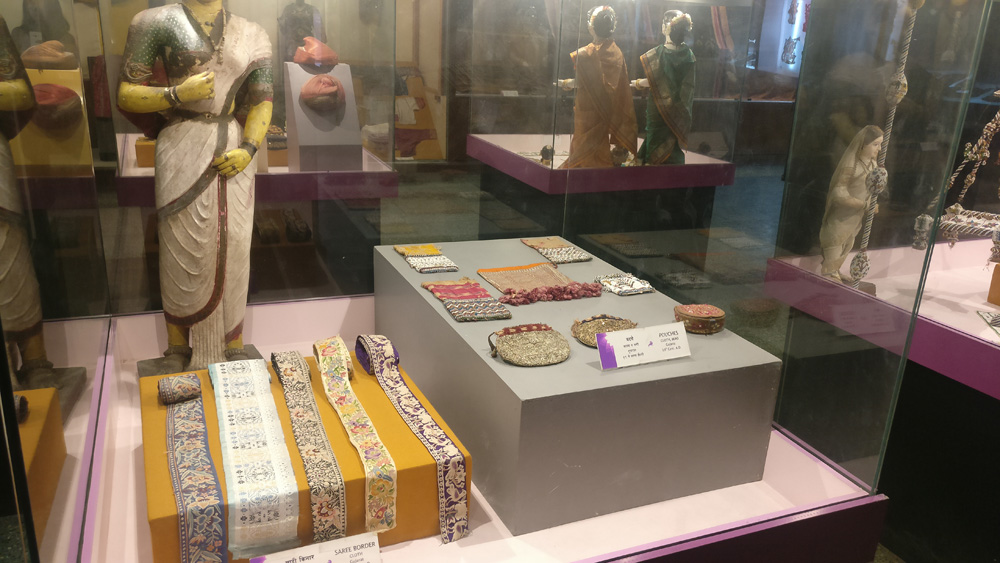
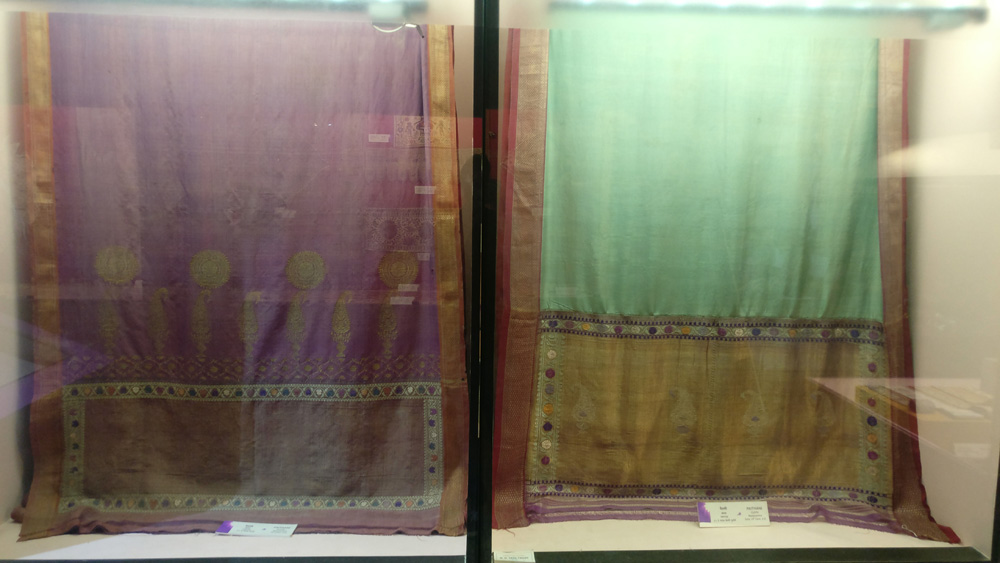
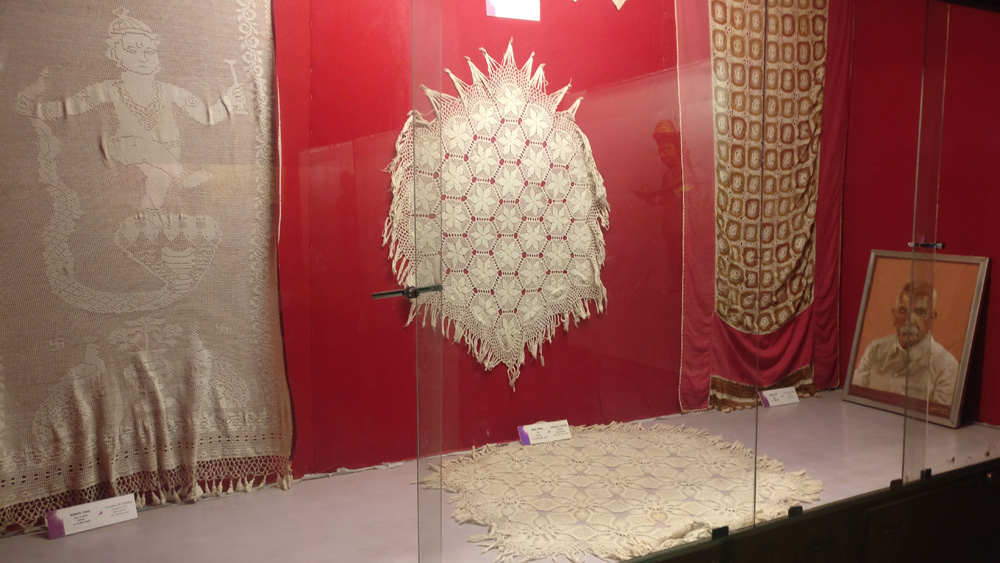
Wooden Yakshagana puppets from Karnataka, 19th century.
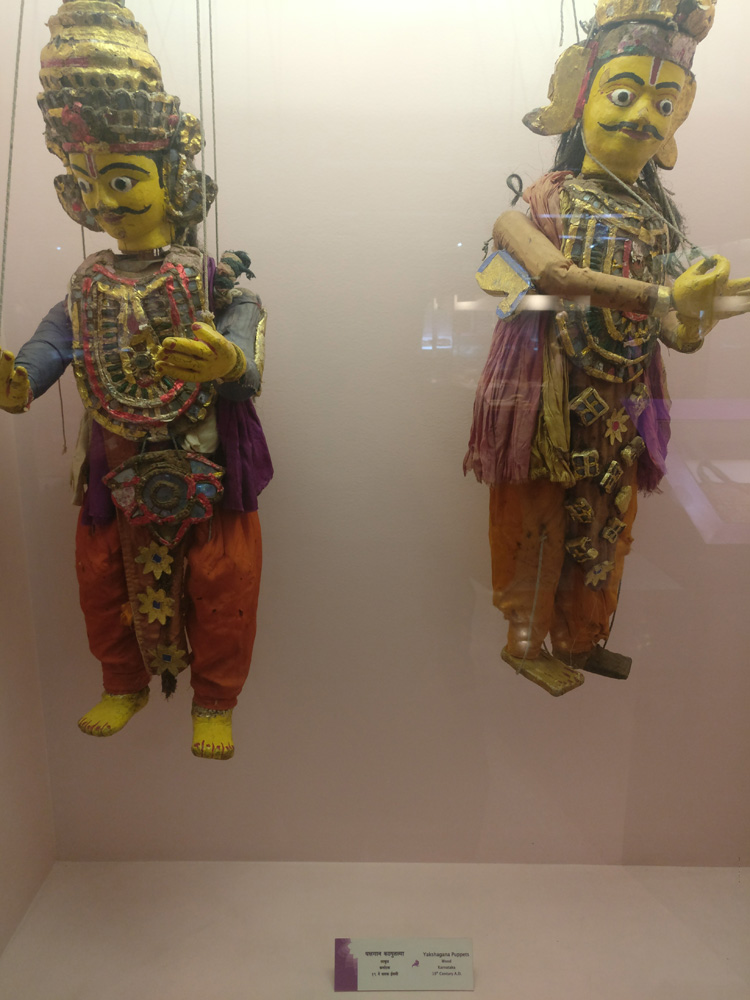
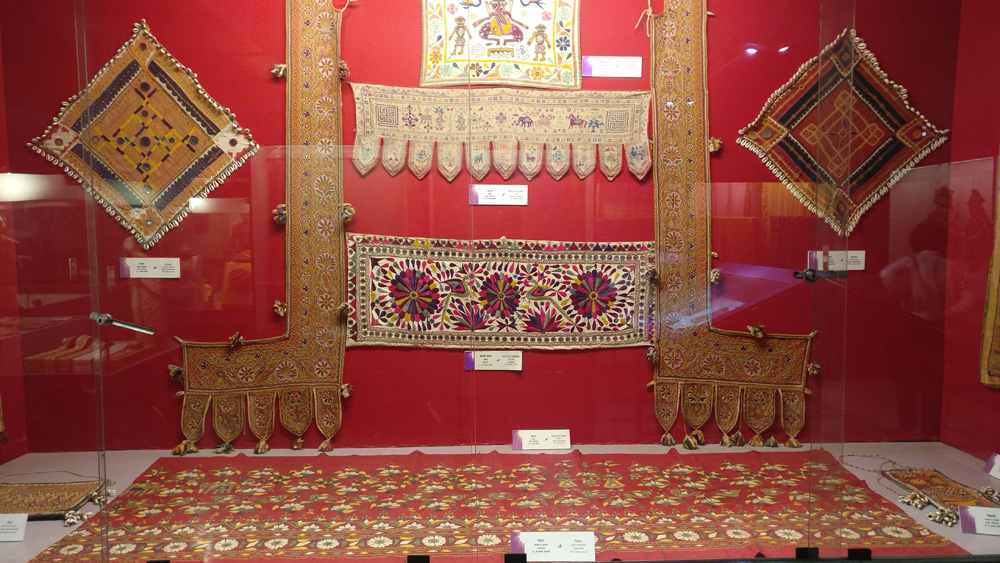
More string puppets from 19th century Karnataka.
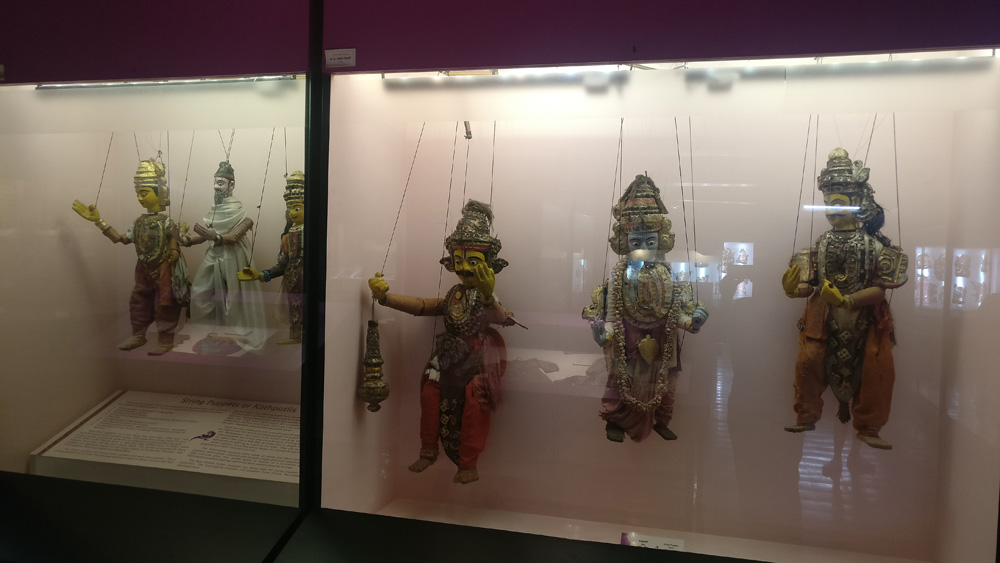
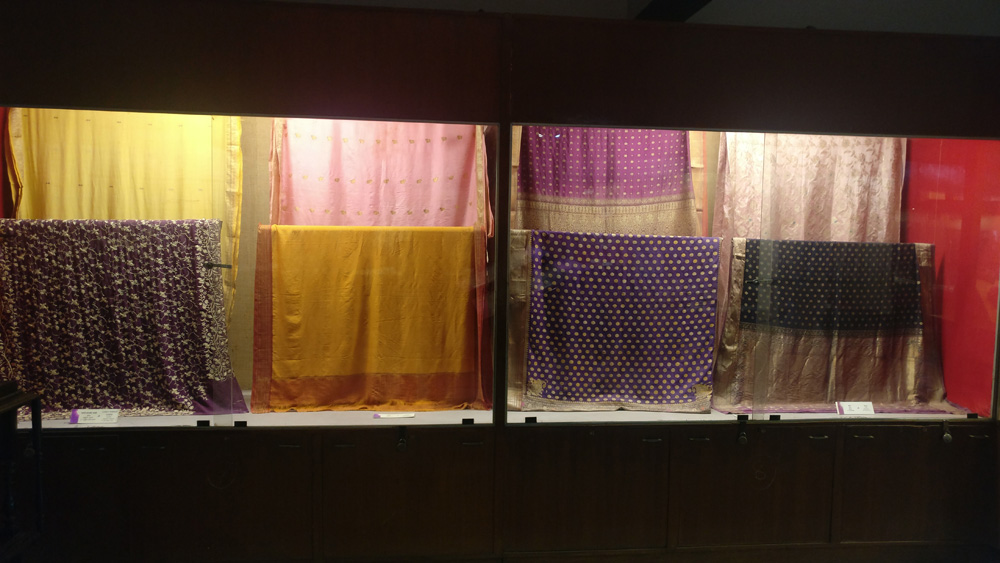
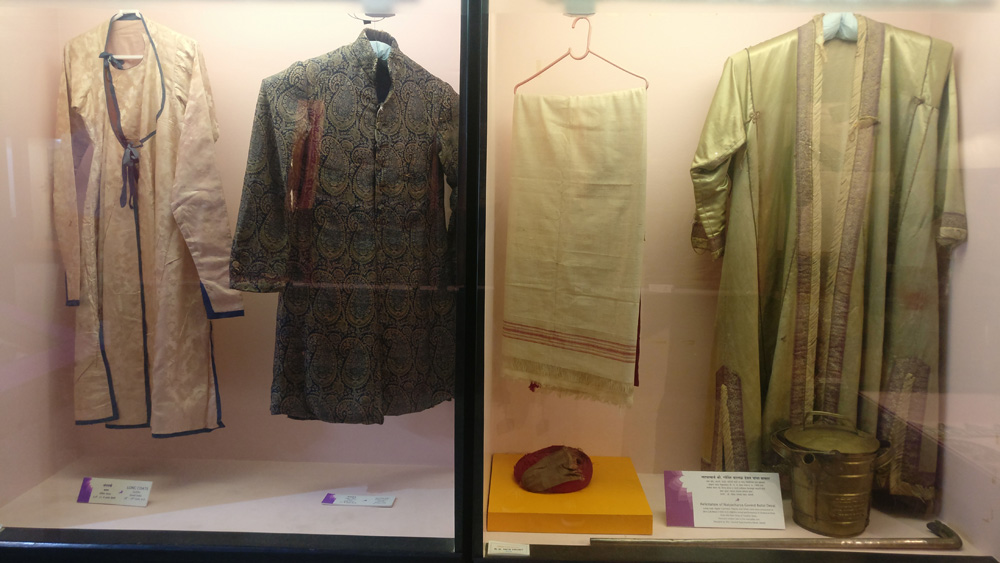
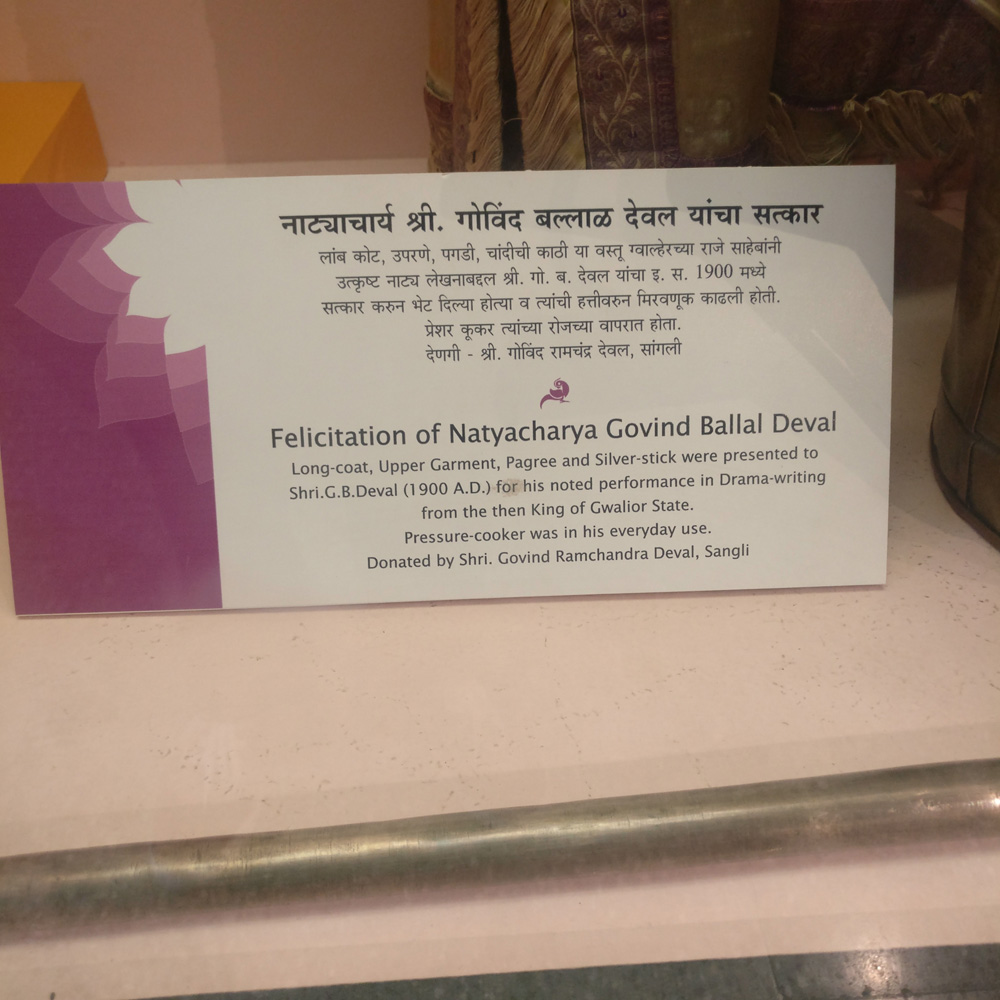
Leather puppets, again from Karnataka. I guess Karnataka was big time into puppets in the 1800's.
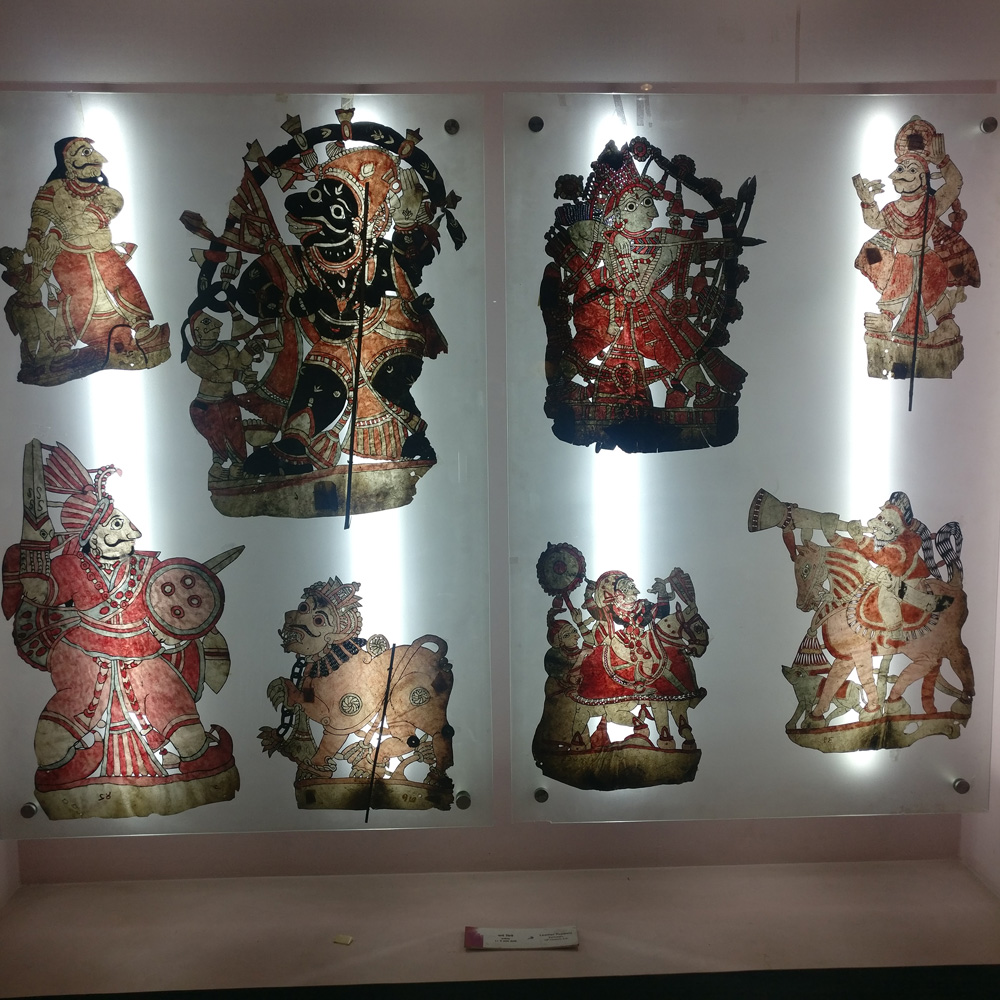
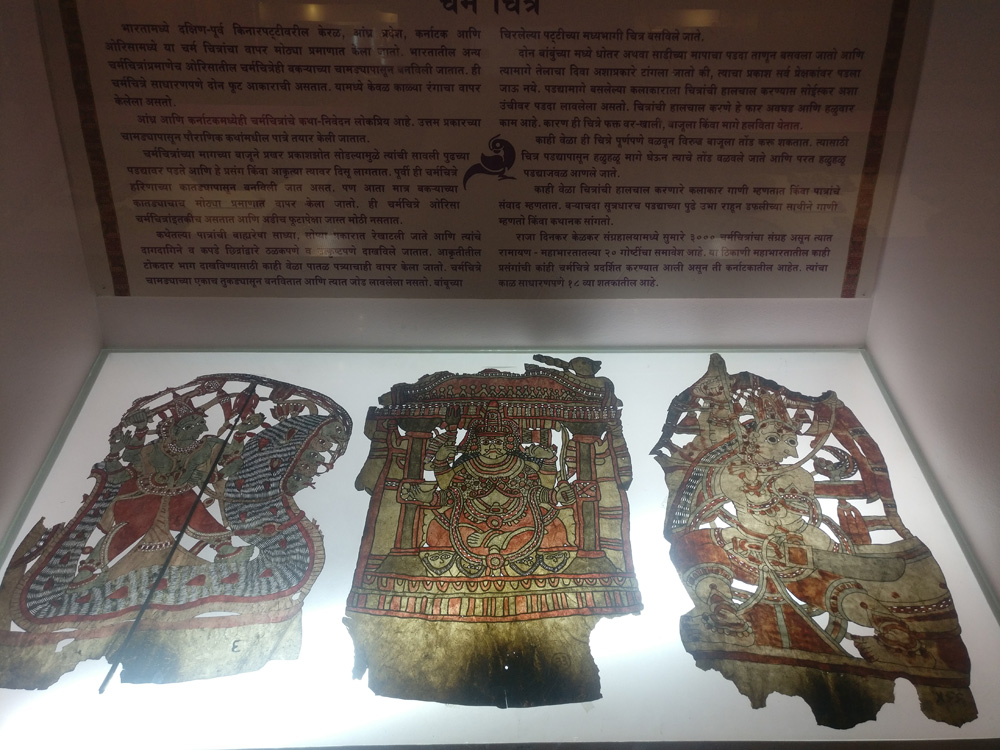
Below is a quilt belonging to Dr. Anandibai Gopalrao Joshi, presented to her by her American friends, September 1886. In case you don't know who that is, she was one of the first Indian female physicians, and also believed to be the first woman from India to set foot on American soil.
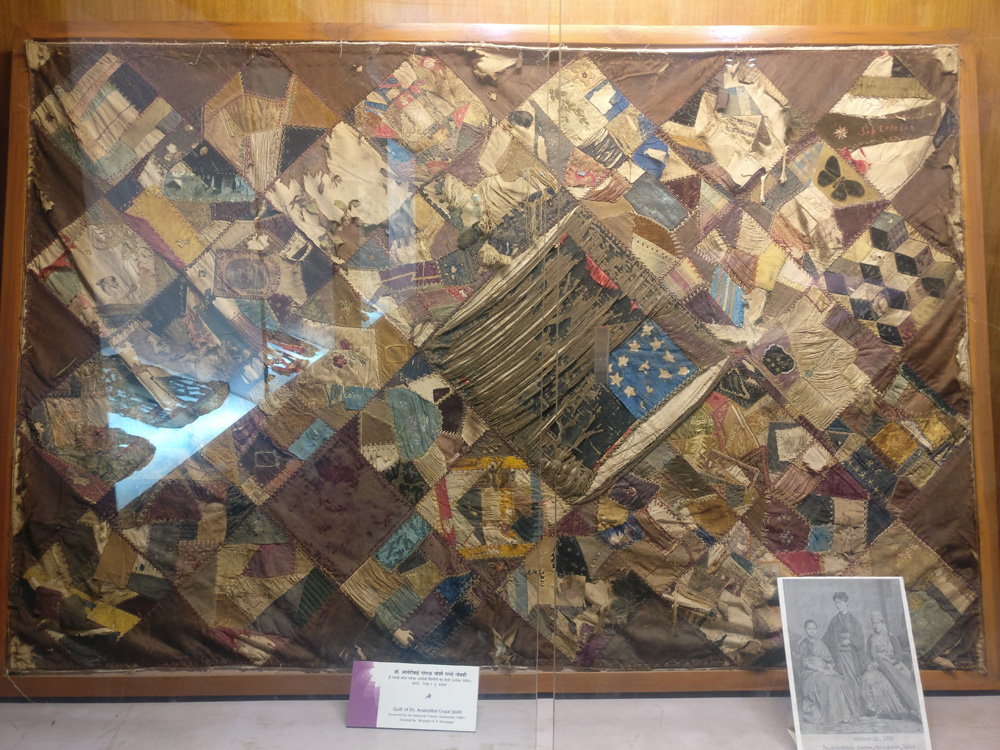
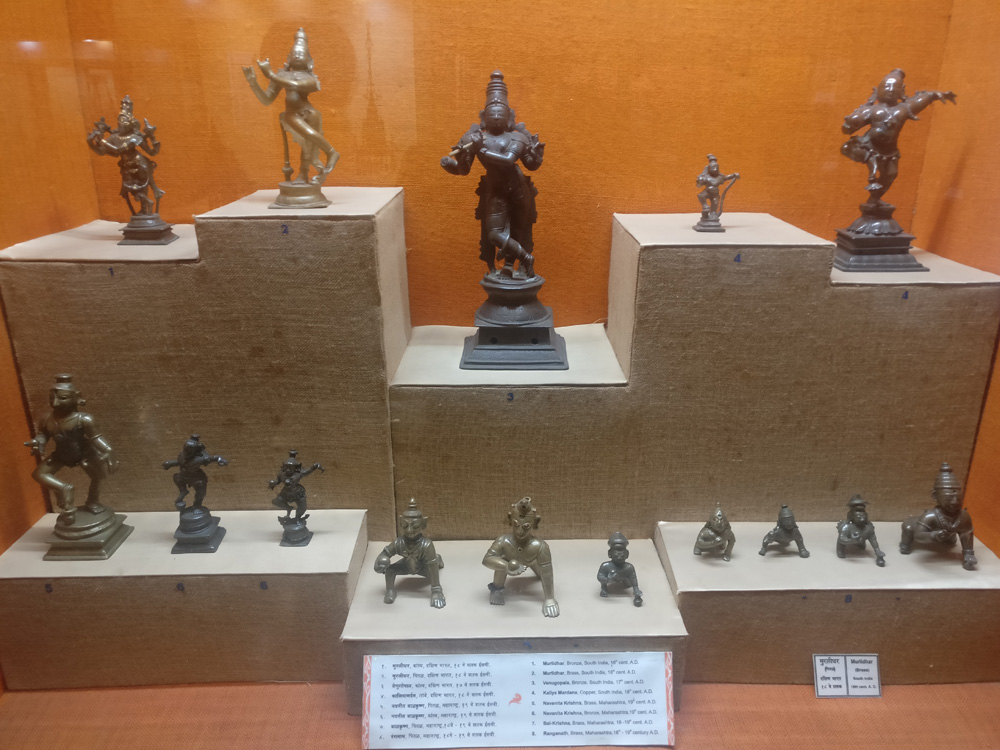
Bronze, Brass and Copper idols spanning from 17th to 19th century.
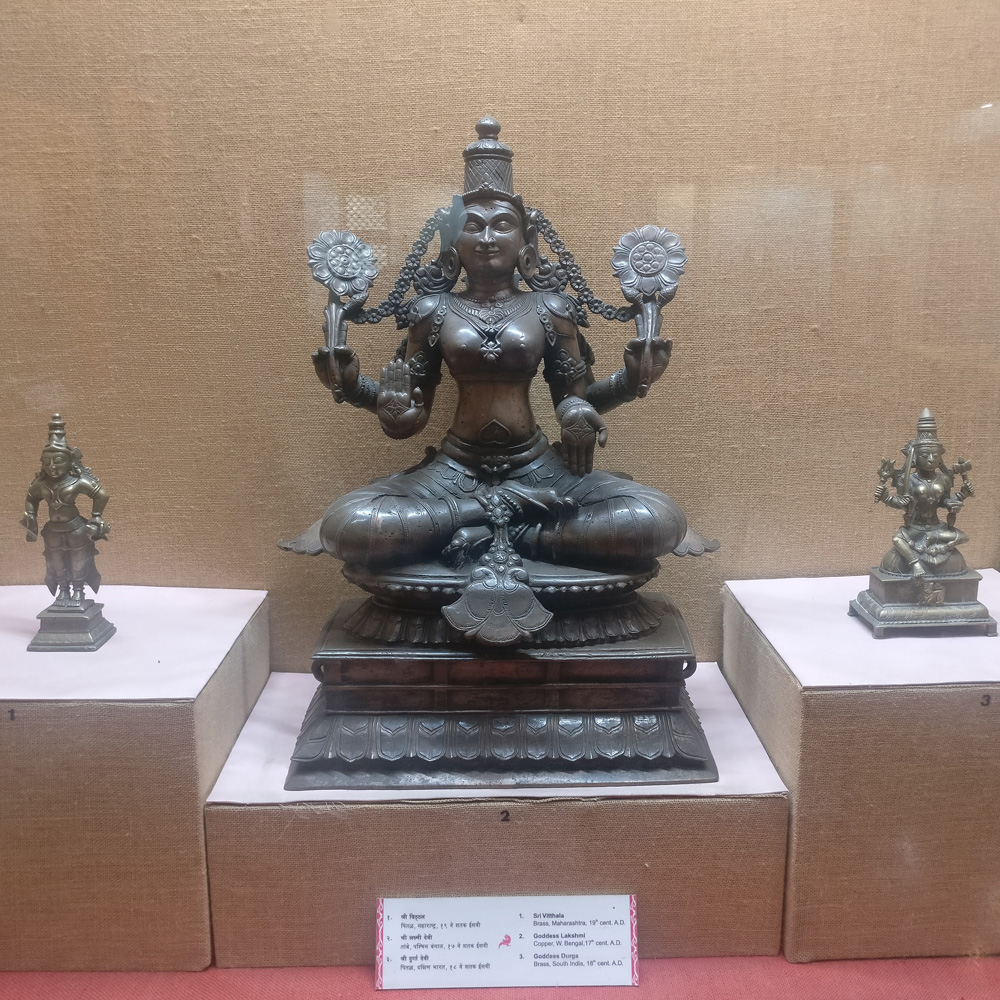
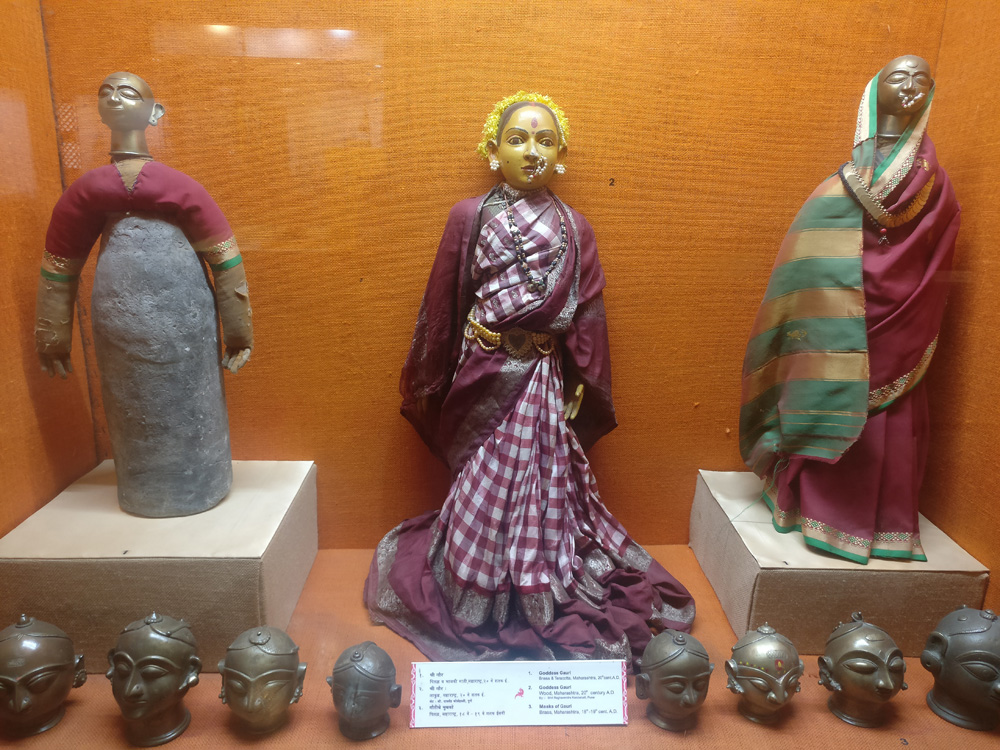
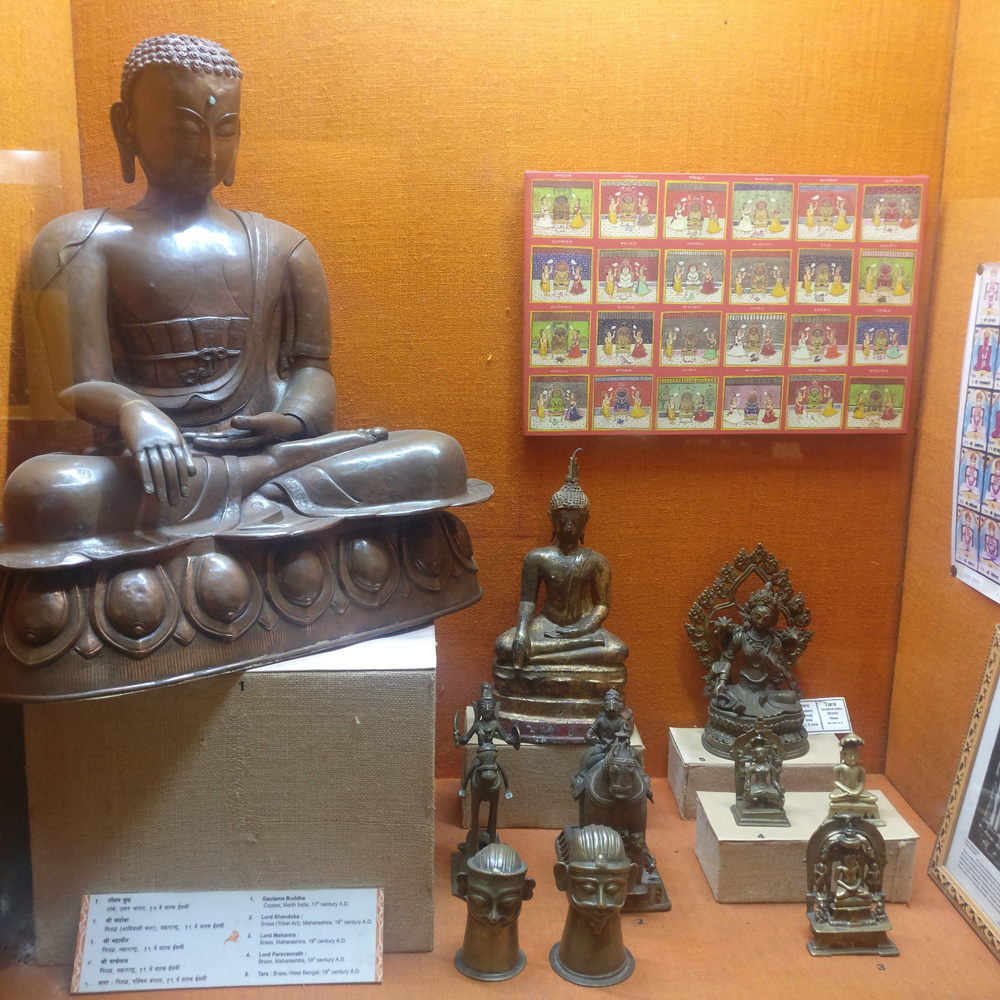
The second-floor B-wing consisted of mostly lamp-stands (dias) and other interior decorations.
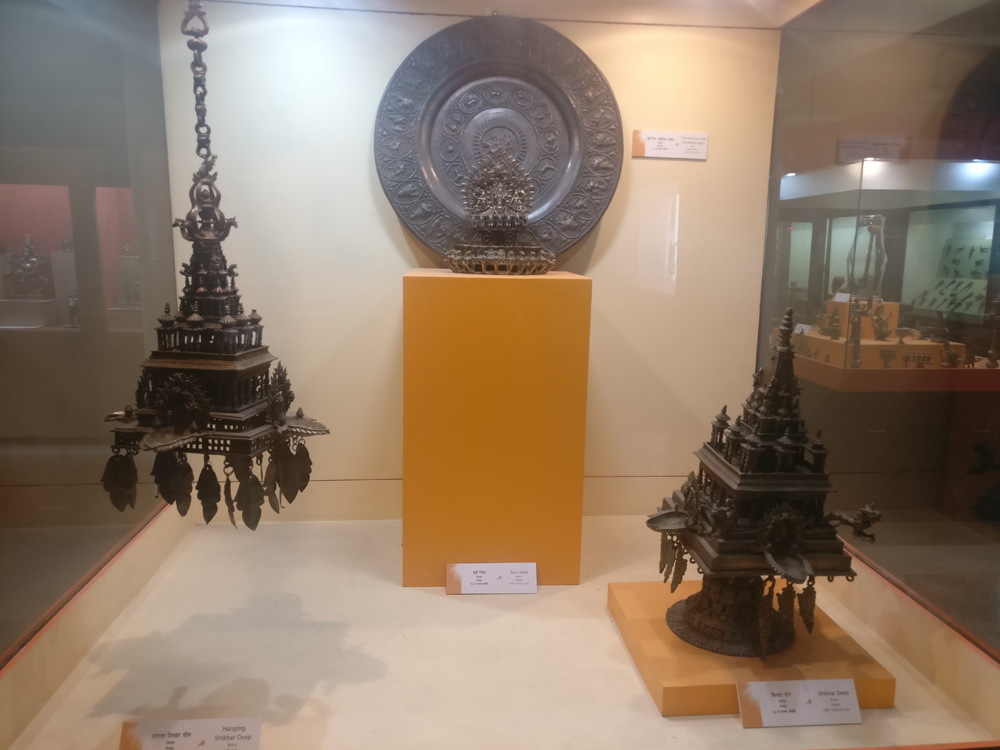
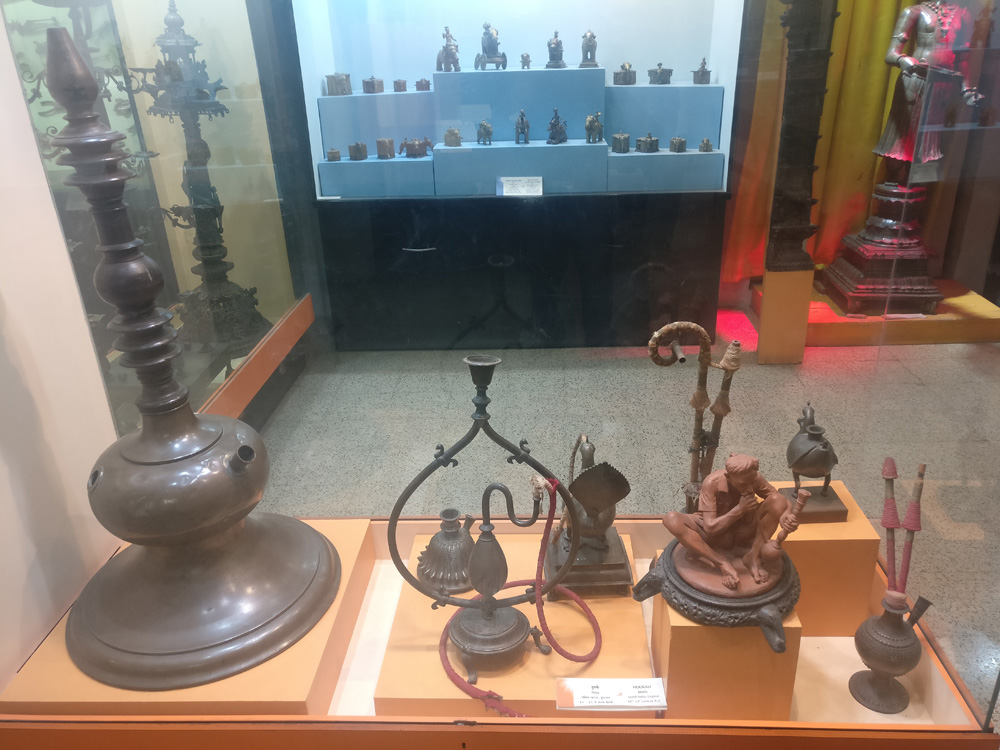
Yo wanna smoke up some 18th century dope bruh? :P
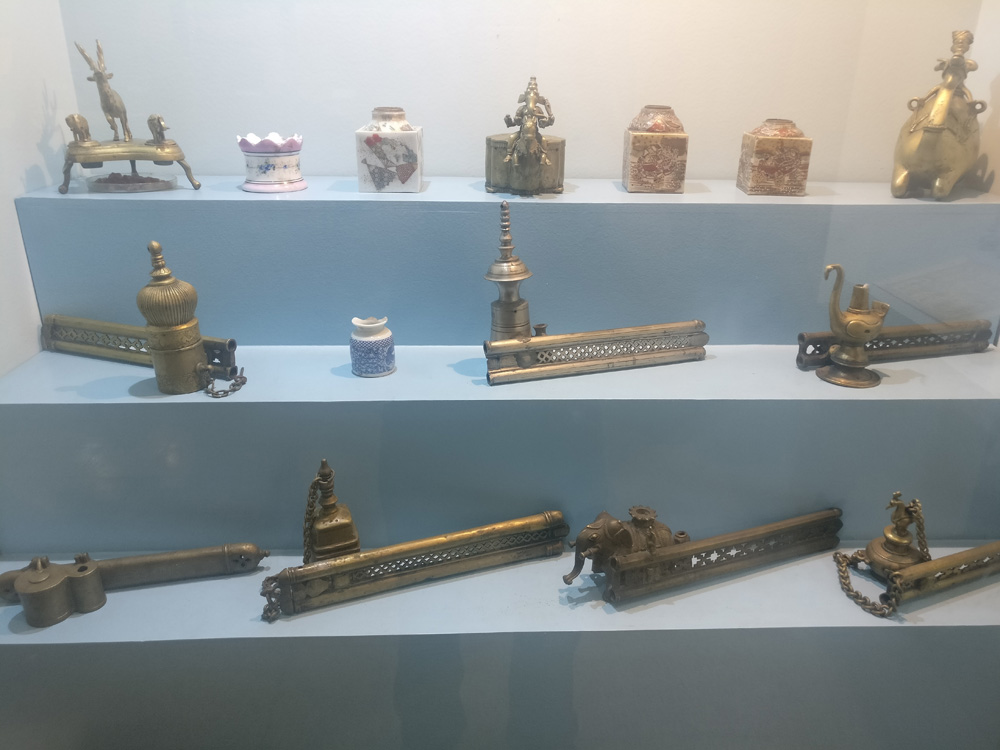
Even back then, the pen was definitely mightier than the sword. Some exquisite quills below.
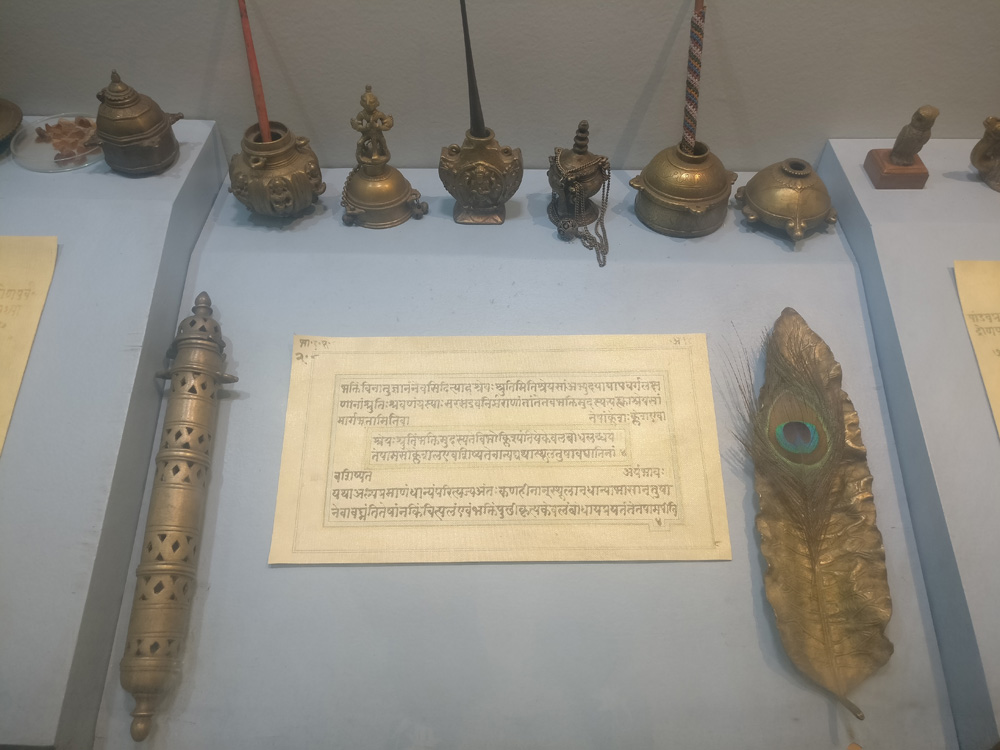
Fancy locks indeed!
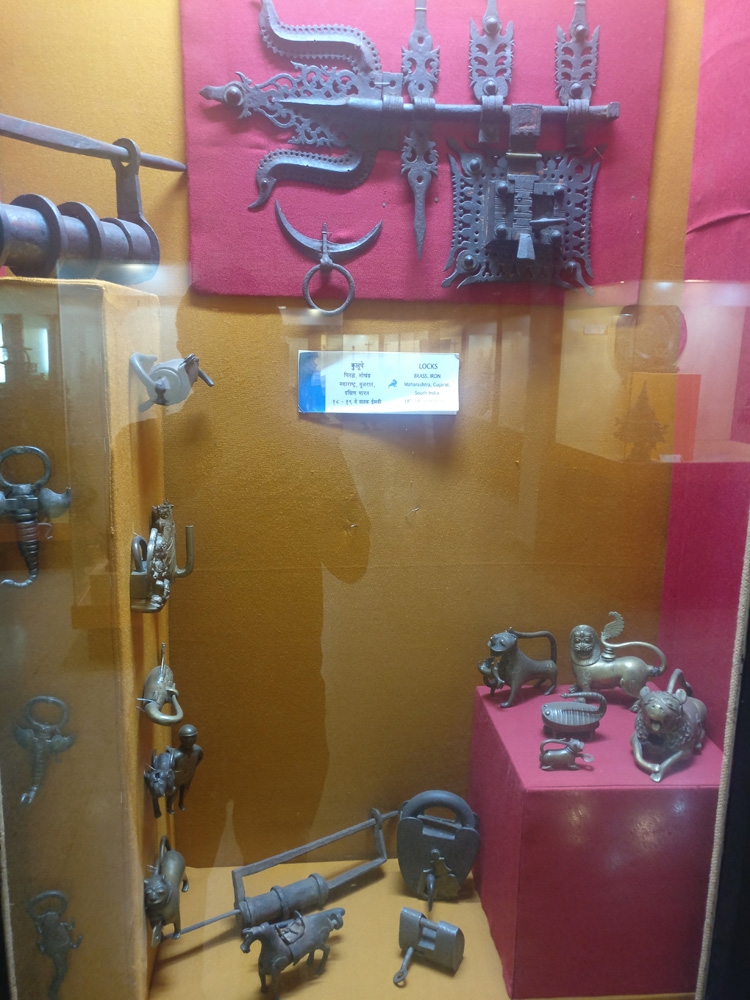
18th century lamps and dias.
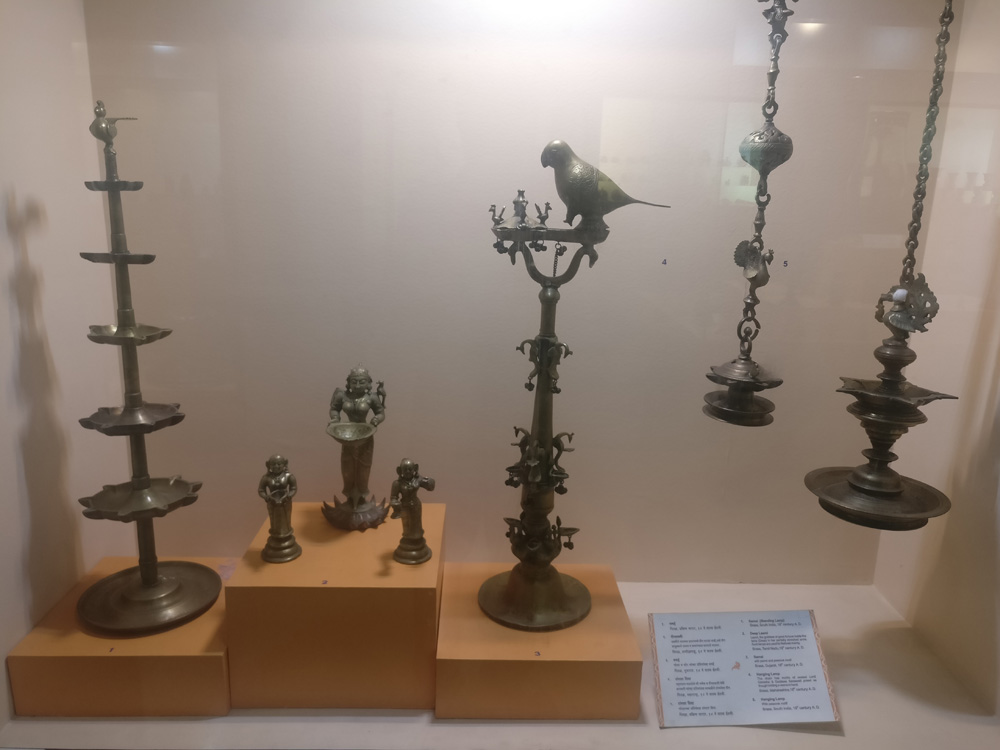
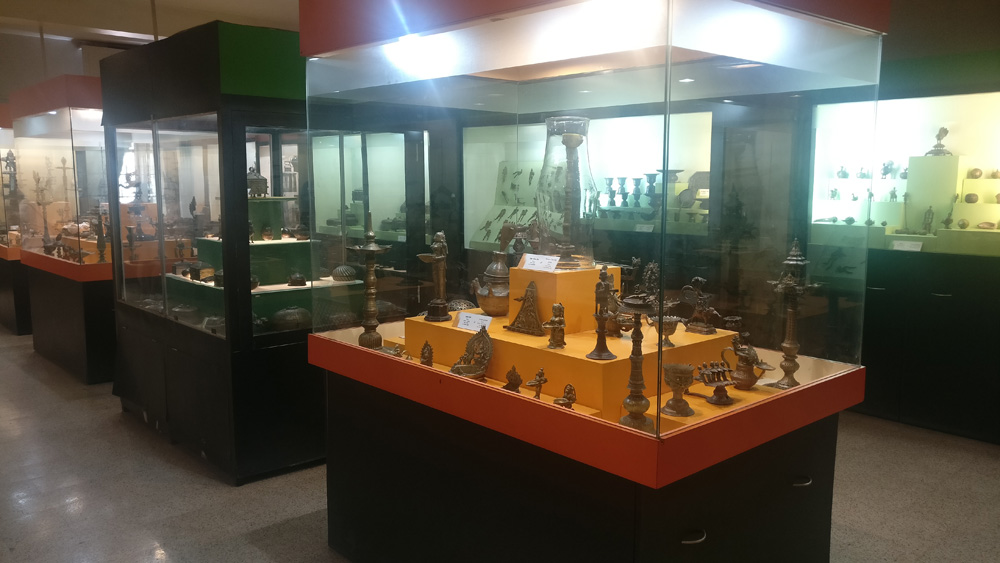
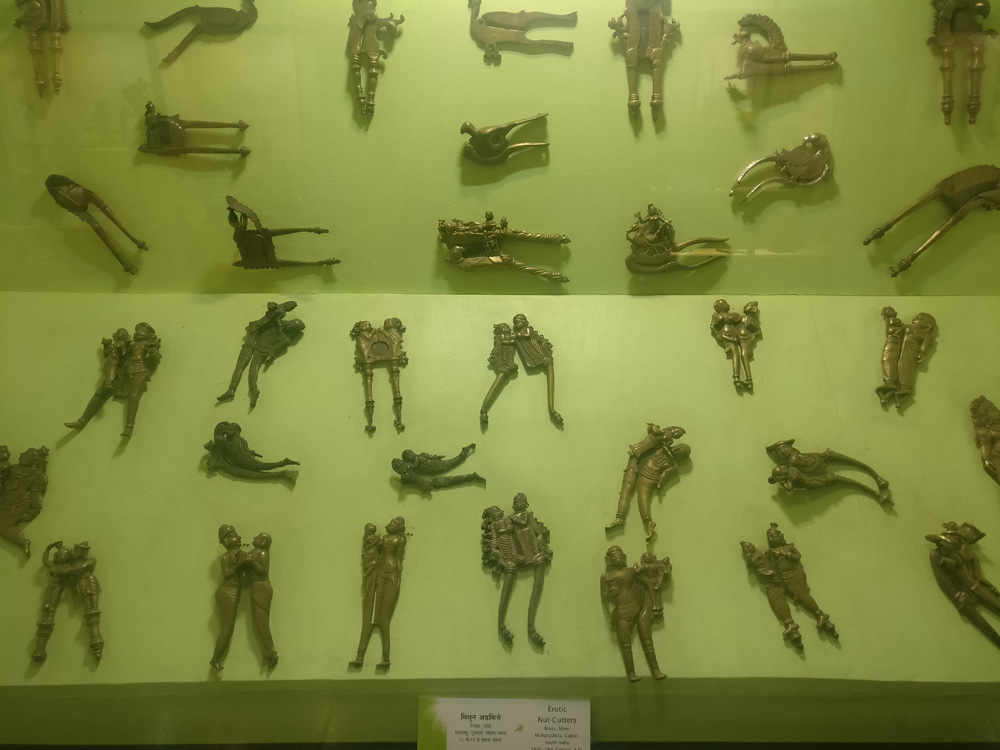
I loooove this section, lolz. These aren't just nut cutters, they are "erotic" nut cutters. Look at the enlarged images carefully, lolz. People were so brazen those days, I like it!
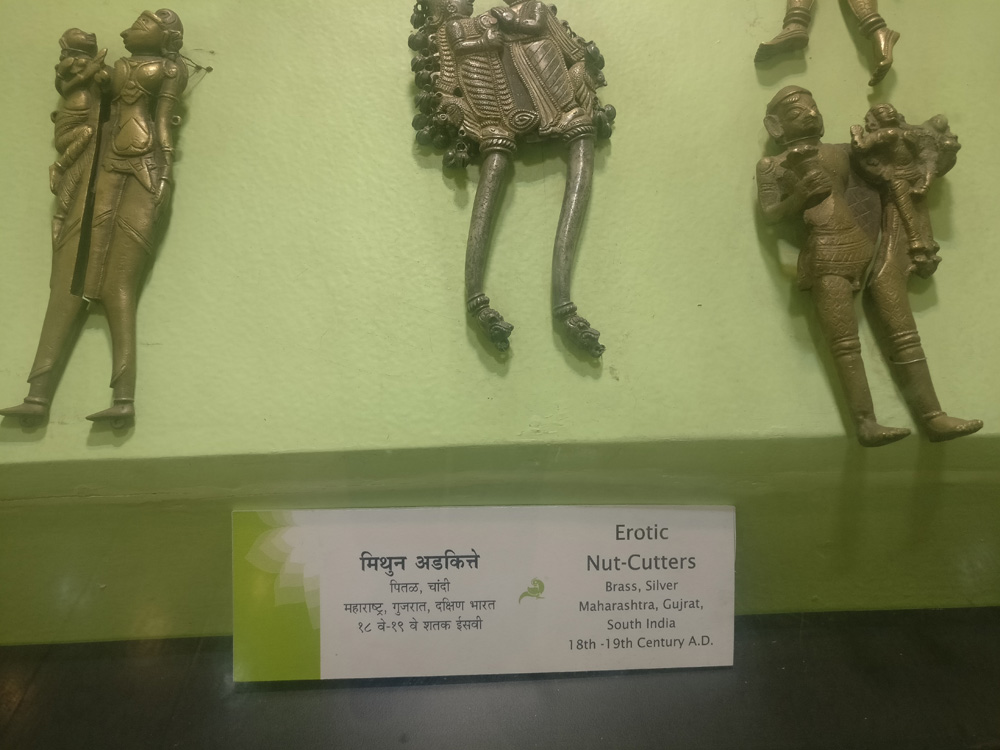
We Mizos would love this "betel boxes" to keep all our kuhva hrings :D
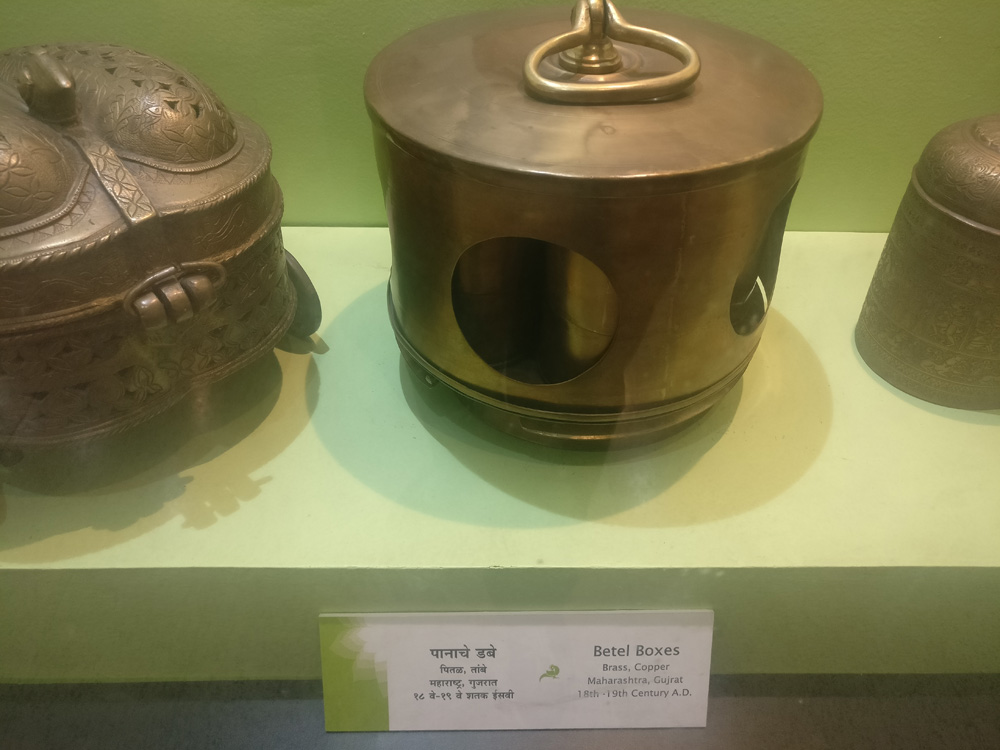
Below, from left to right - Standing Lamp (brass), Tribal Lamp (wood and brass) from Madhya Pradesh, Garud Deep (wood and brass) and Guru-Shishya Deep (brass) from Gujarat.
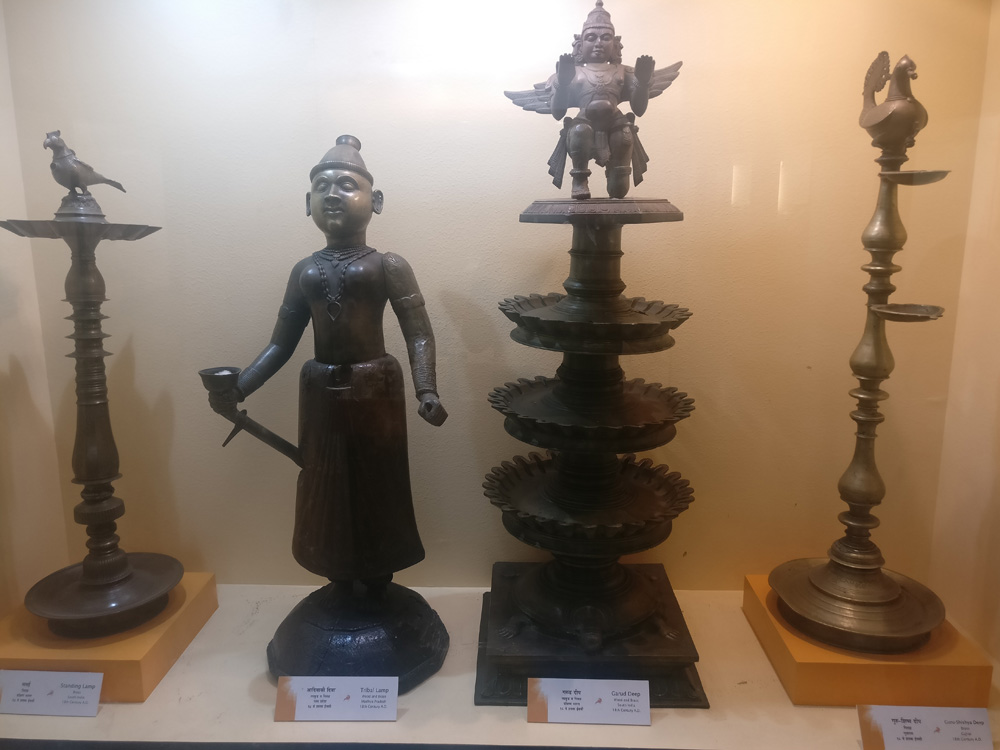
And finally, some exotic looking "Mughal Lamps" from Maharashtra, made of copper and brass.
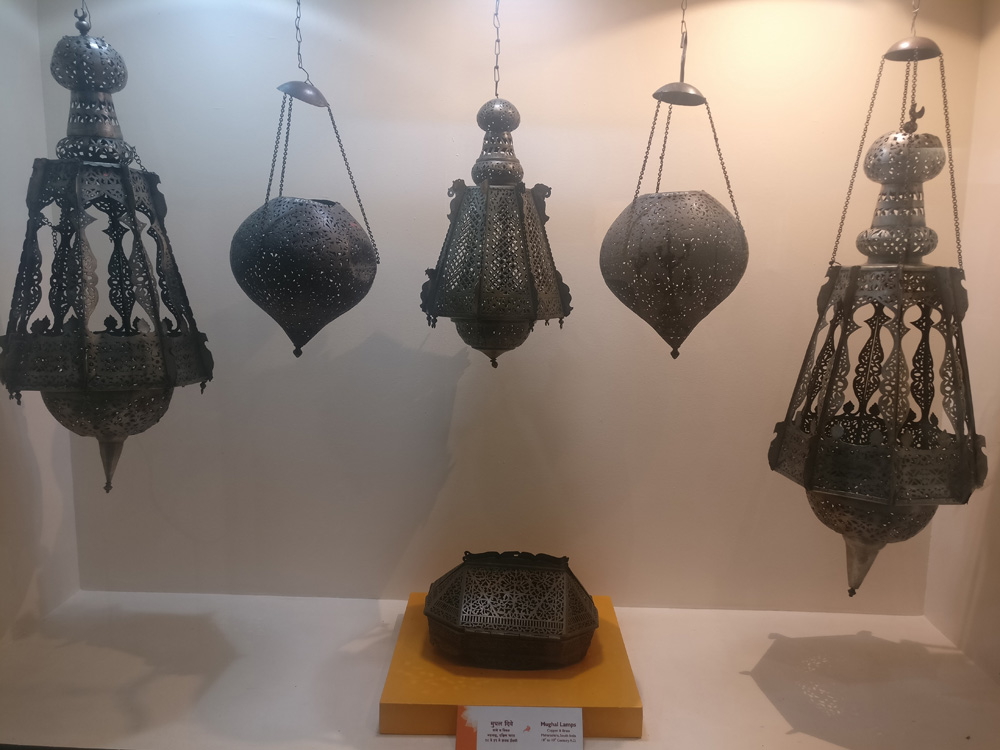
The lamps below are called "Ship Lamps", made of tin plate and glass, obviously to make it water and wind proof. They are hung on the posts of ship decks.
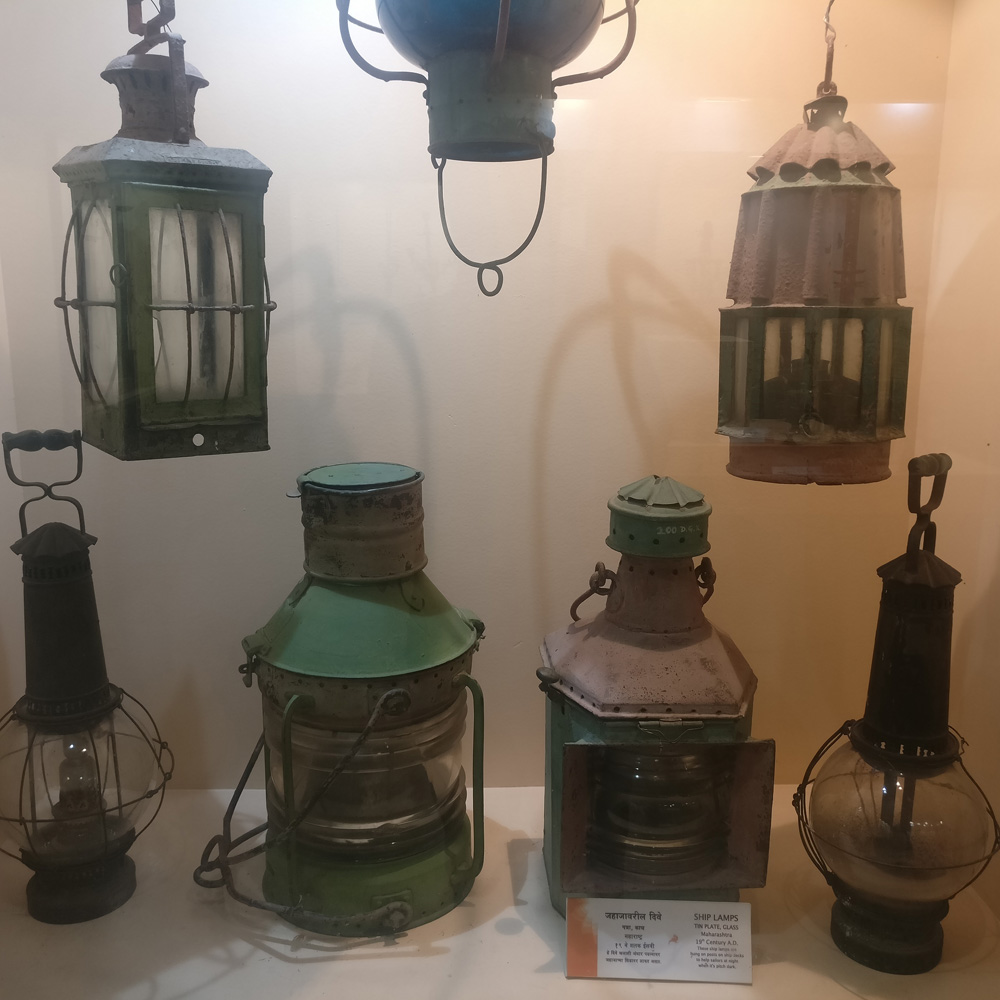
We went down from the B-wing second floor to the B-wing first floor, which housed different musical instruments, ranging from tablas, veenas and sitars to the first musical Organ in Pune.
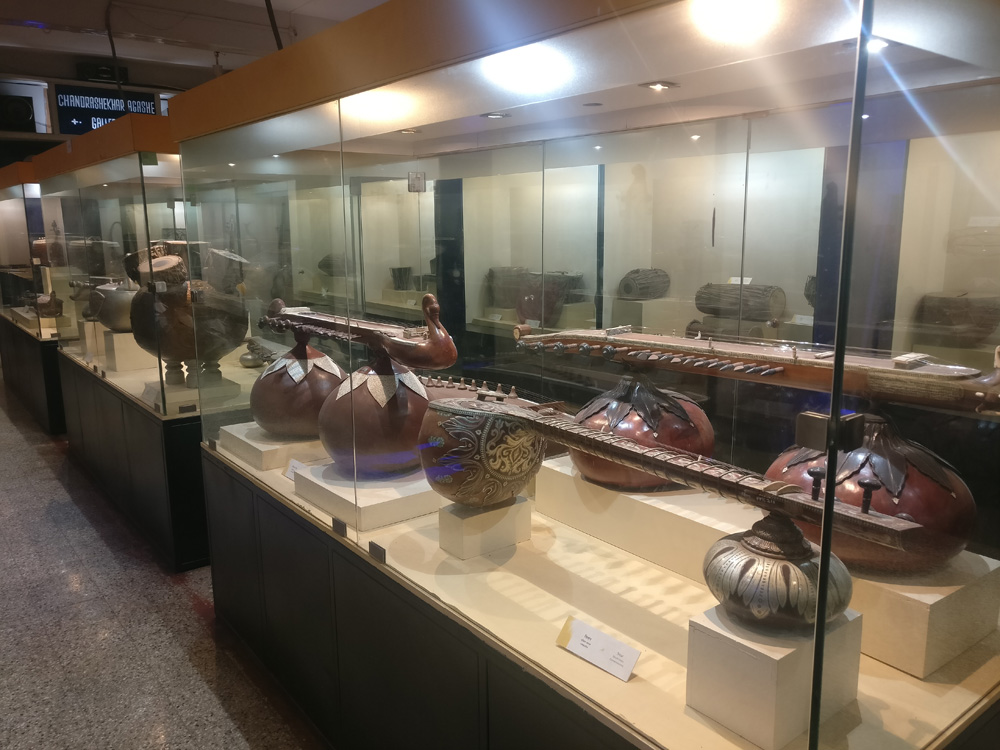
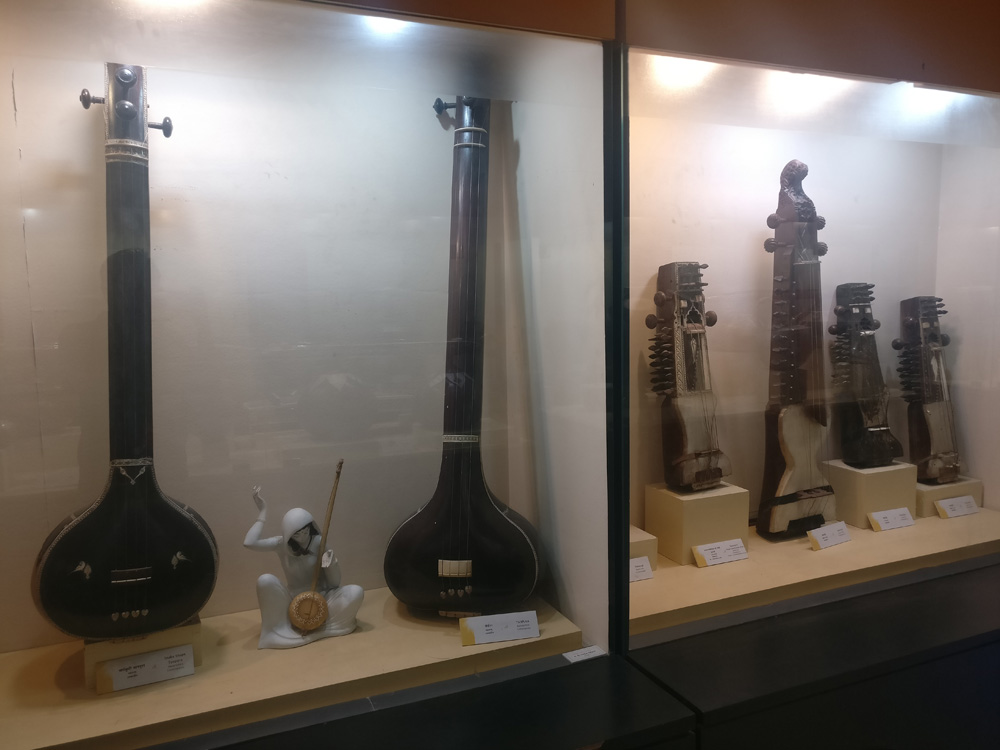
So is the musical instrument above a Sitar or a Veena? Apparently it is neither, it is a Tanpura.
Below we have a couple of "Peacock Sitars" and the era is marked as "contemporary".
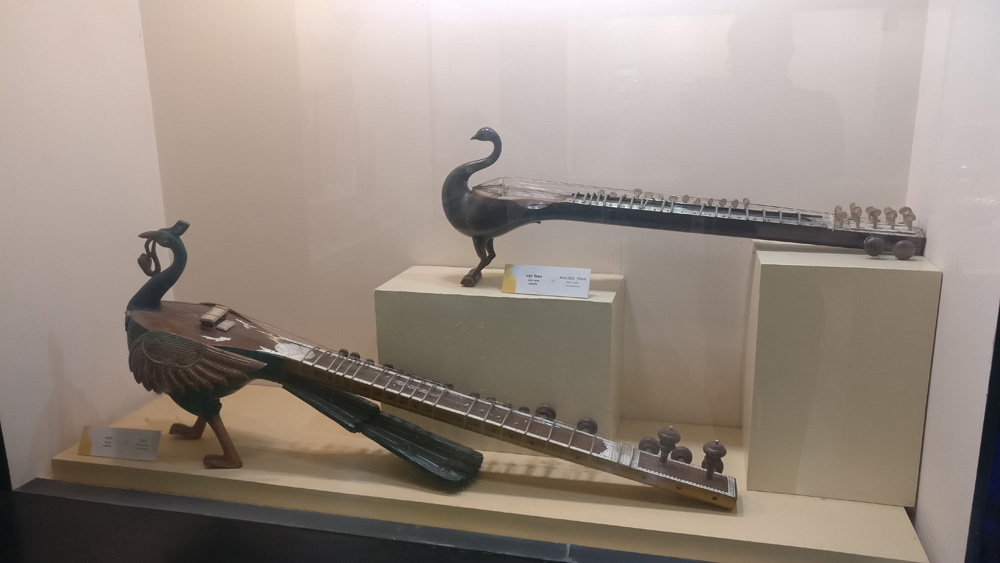
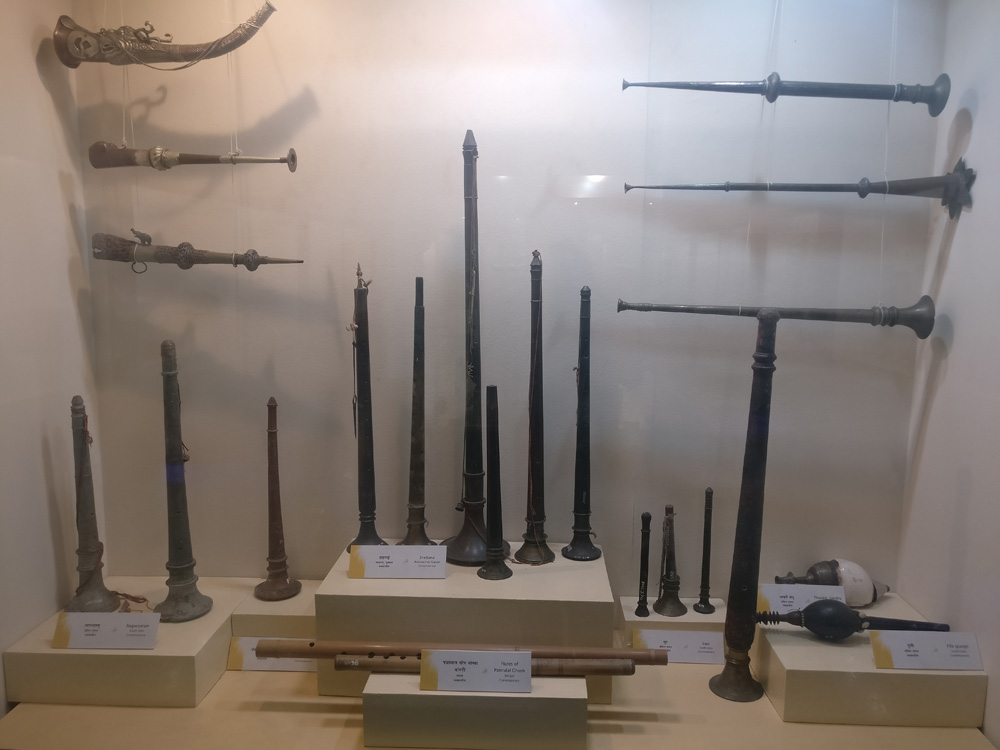
The musical instruments above are labeled as (L-R) Nagasvaram, Shehanai, Soor, Thavalai Sandhu and Fife (pungi), along with the flutes of Pannalal Ghosh, a famous flute player and composer who popularized Hindustani classical music.
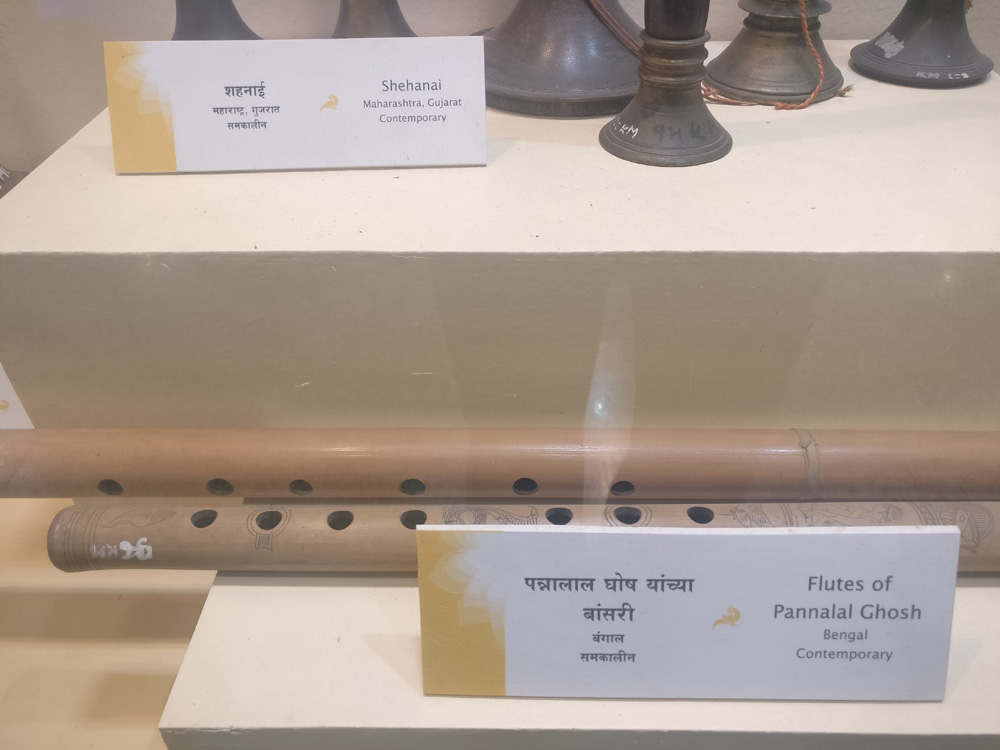
The giant string instruments you see below are known as Gottuvadhyam, a type of Veena used as a fretless lute in Carnatic music. Next to them is a 19th century Harmonium from Maharashtra.
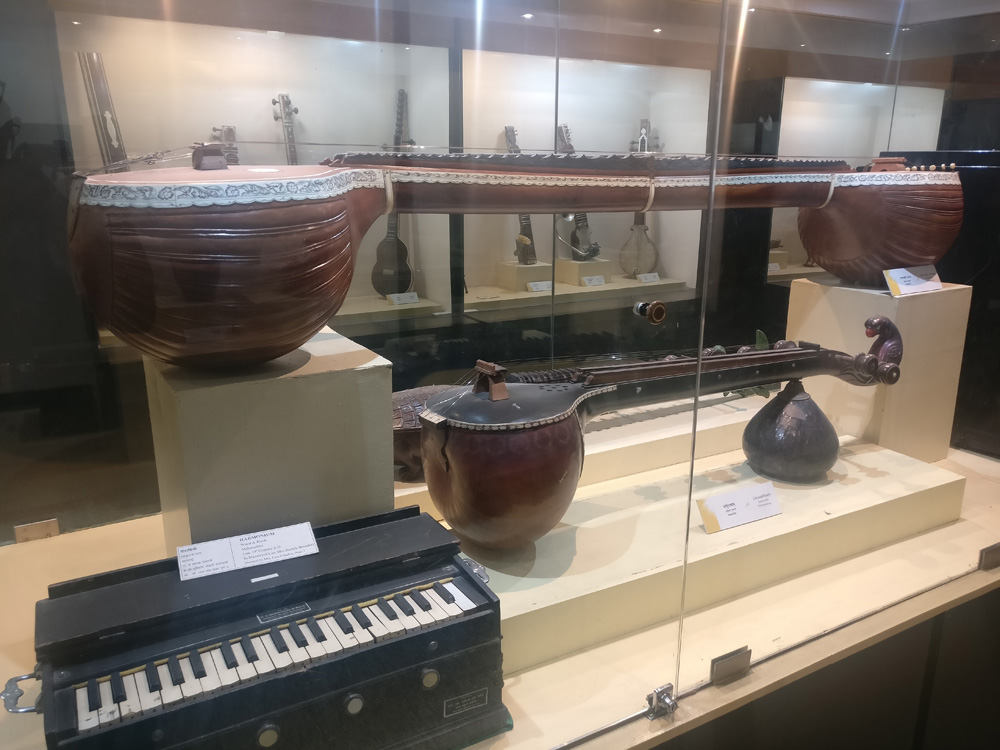
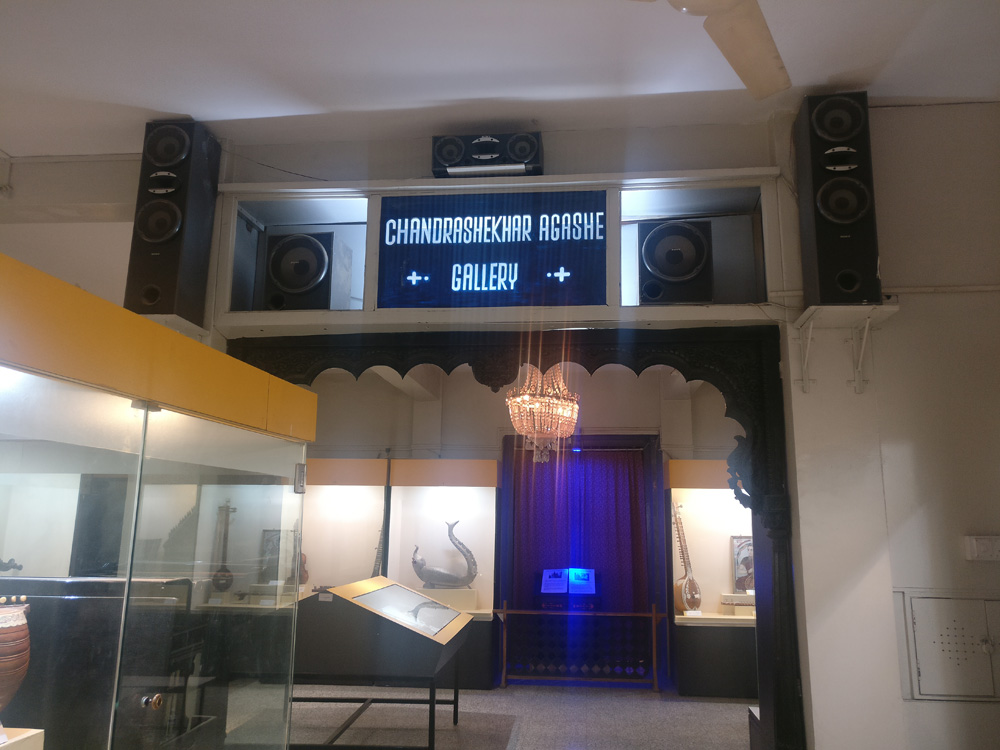
The above gallery is called "Chandrashekar Agashe" and google search says he was a renowned industrialist, not a musician, so I'm guessing he sponsored this section of the museum? :)
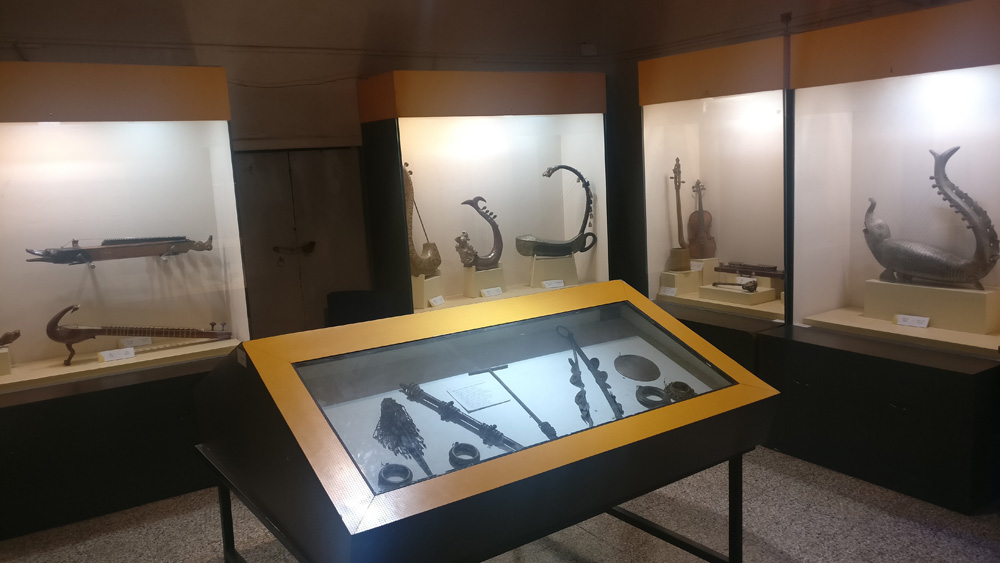
Check out the fancy harps in the picture above!
Below, the musical instruments from L-R are called Saaz Kashmir, Taar Shehnai (both of them), and a Rabab.
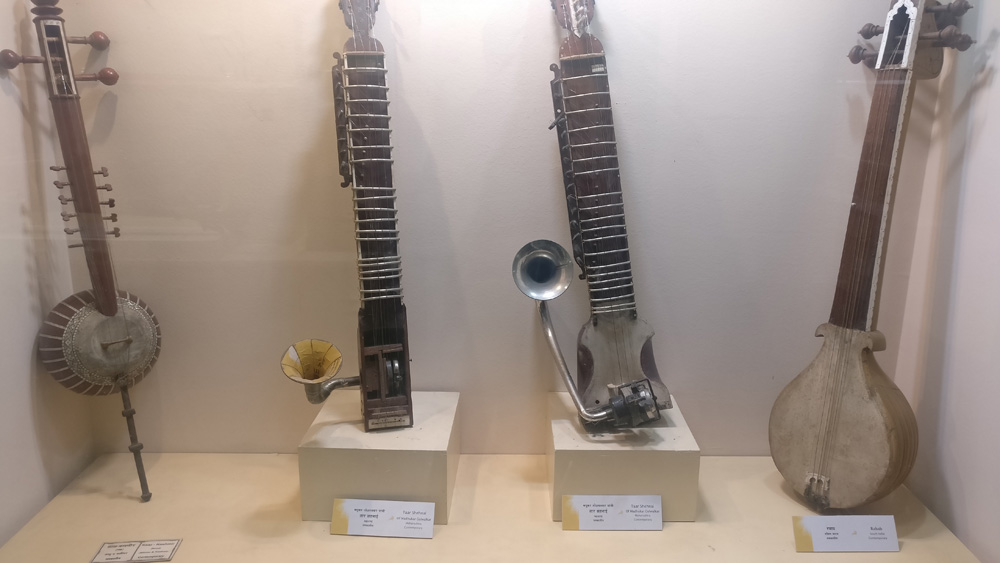
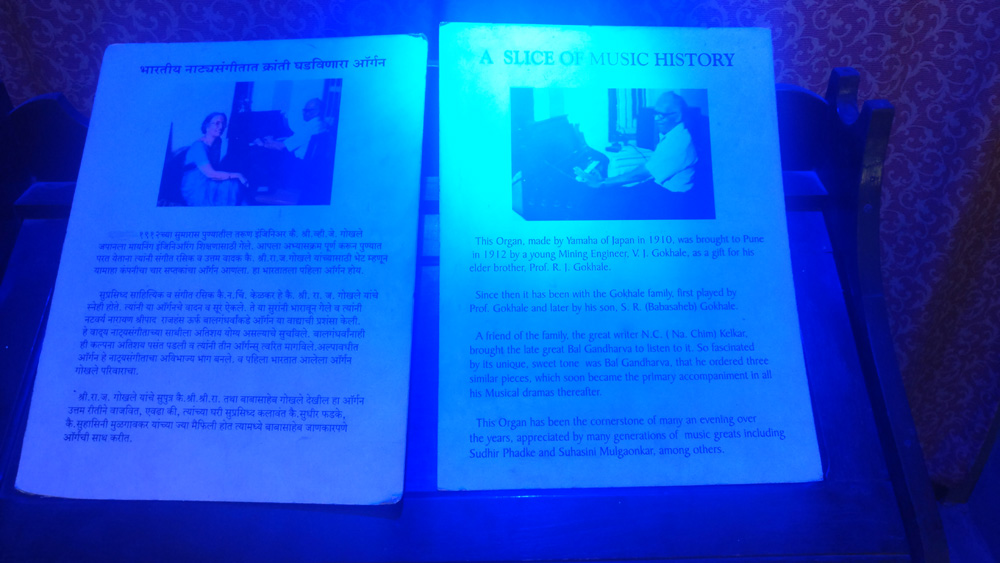
If you can't read what is written above, it says - "This Organ, made by Yamaha of Japan in 1910, was brought to Pune in 1912 by a young Mining Engineer V.J.Gokhale, as a gift for his elder brother Prof R.J.Gokhale. This Organ has been the cornerstone of many an evening over the years, appreciated by many generations of music greats, which soon became the primary accompaniment in all Musical drama thereafter".
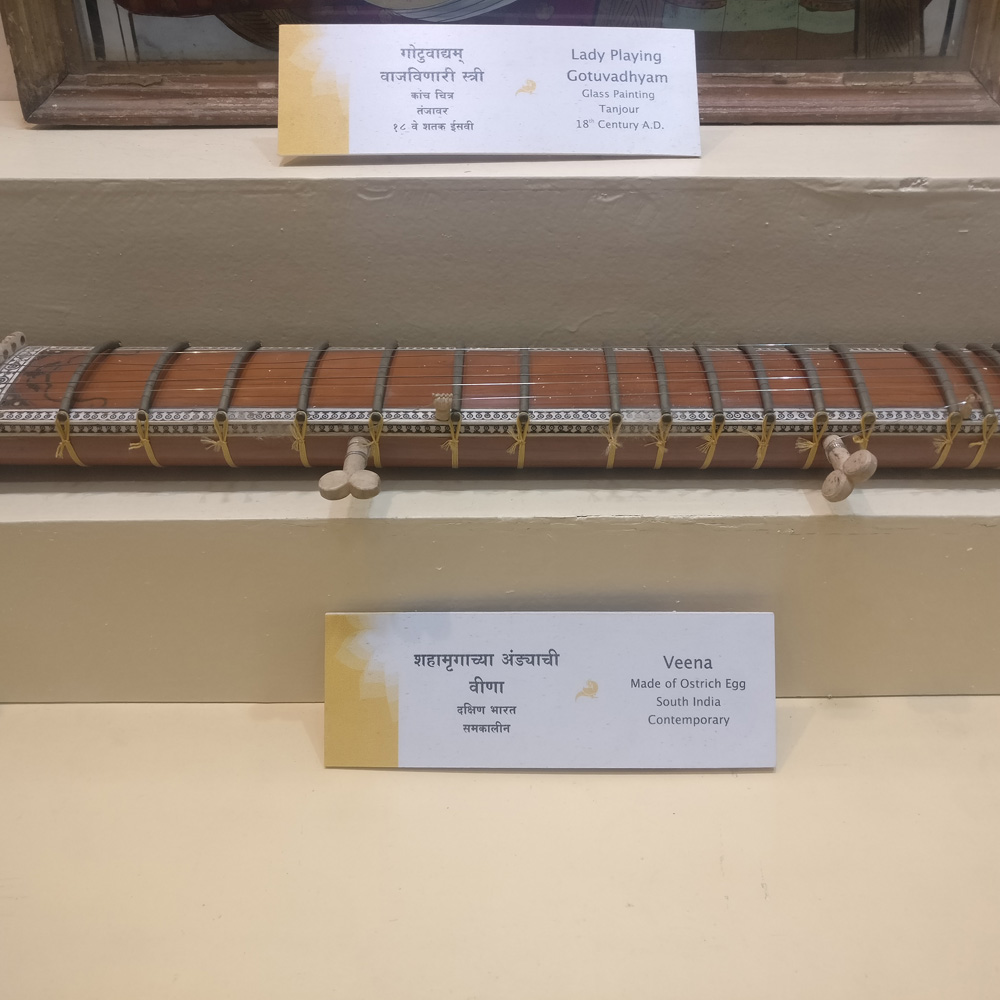
A Veena made of Ostrich Egg!!!
Below is a 20th century oil painting of a beautiful Maharashtrian woman (no other identification on the description).
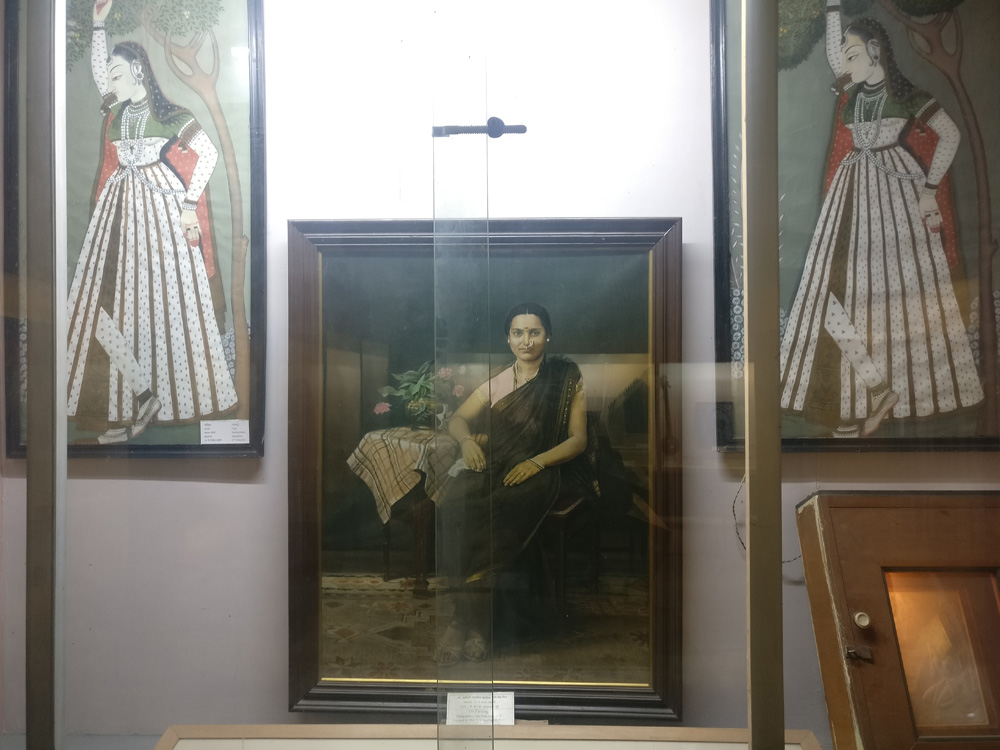
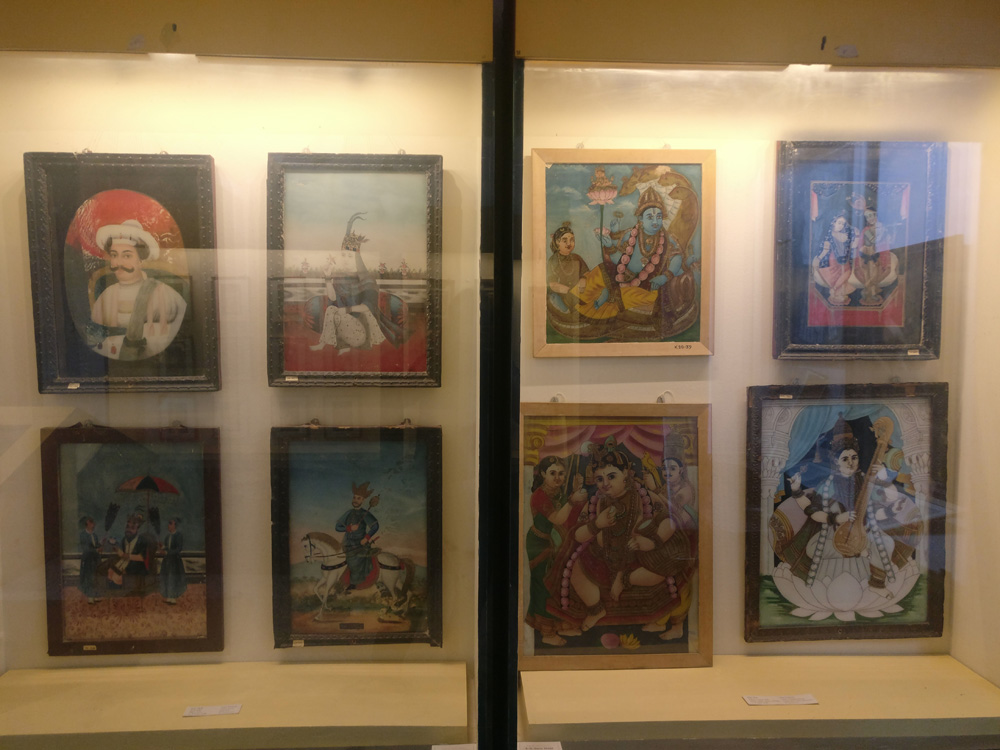
And finally, here is the much famed Mastani Mahal!
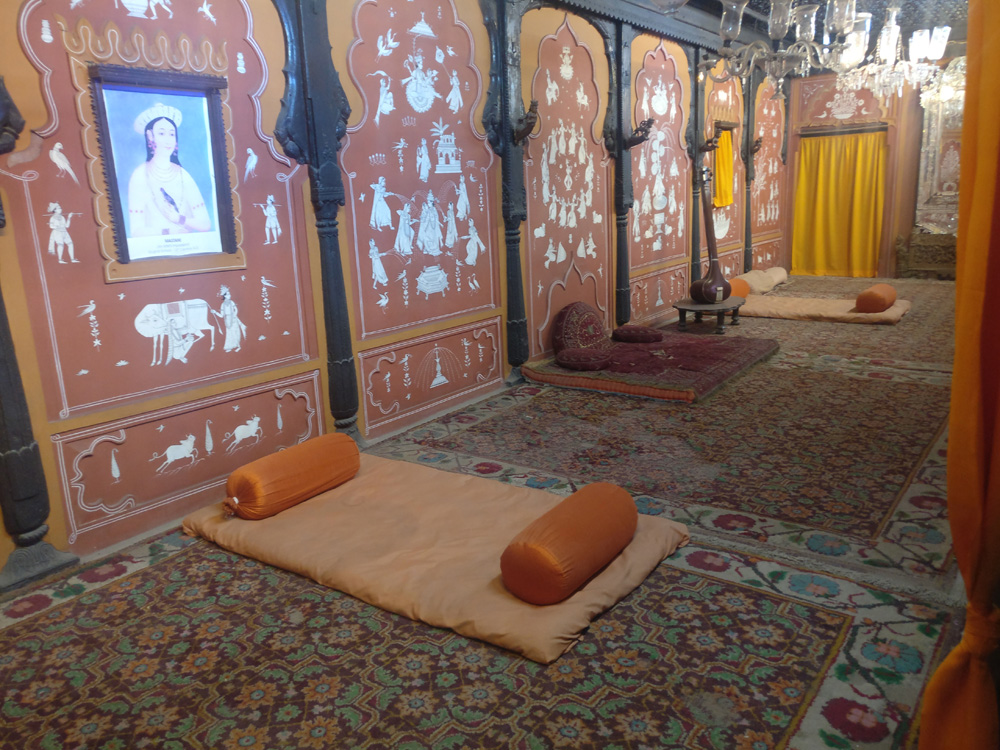
Mastani was the beautiful and brave wife of Maratha Peshwa Bajirao. She had a special residence at their palace, and when they died, the palace was dismantled, but parts of her residence were rebuilt and replicated at this very museum. This was the main show attraction. All the parts like furniture, mats, diwan etc were from the actual original palace, so it was like walking through an important piece of history.
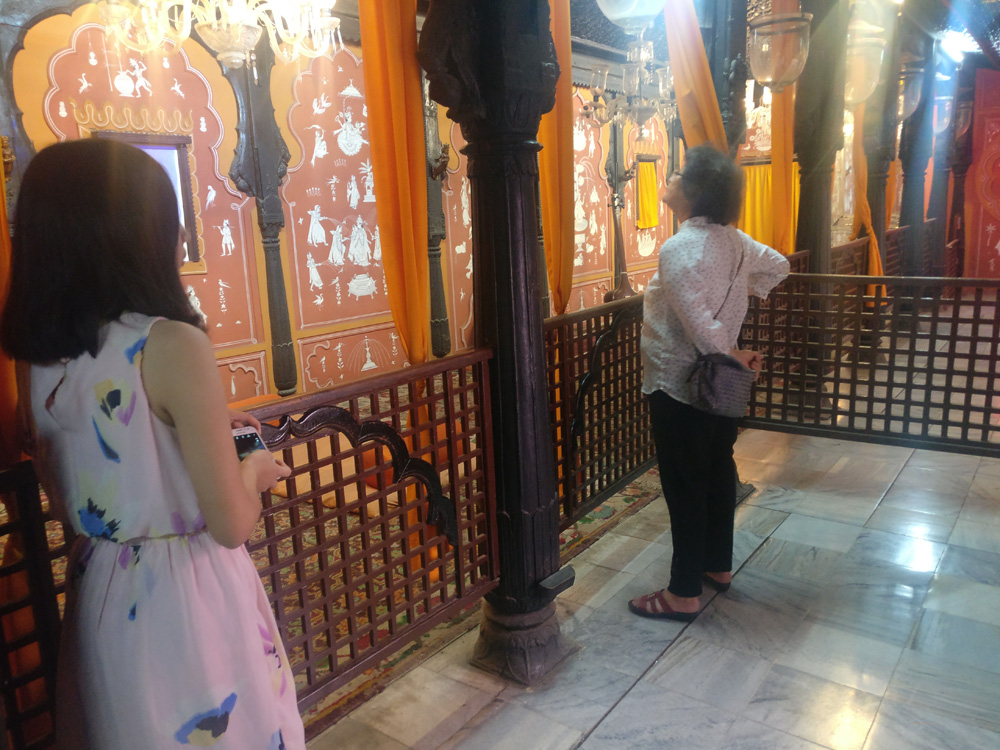
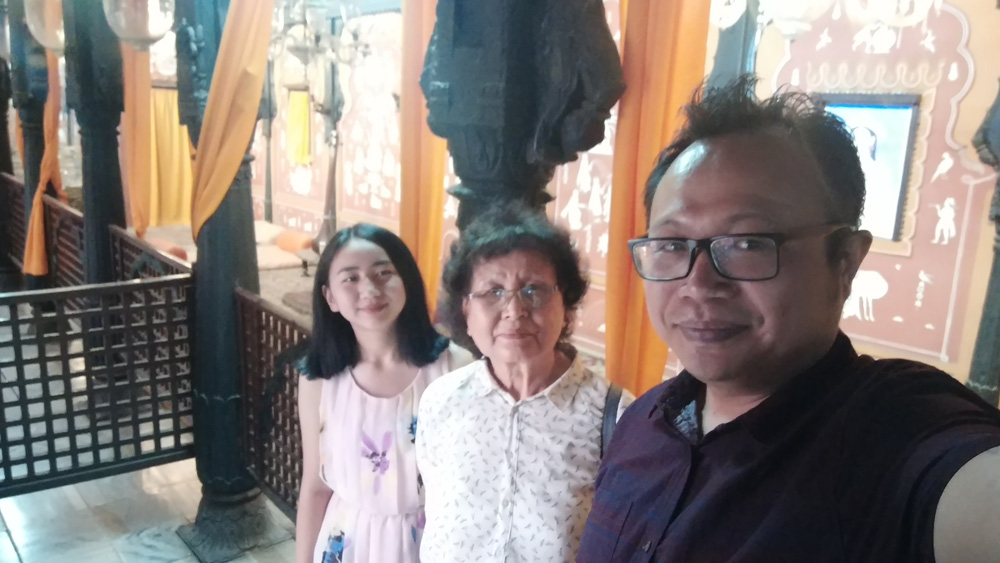
After this, we went down to the ground floor B-Wing. There were still a few interesting stuff to see, like the games people used to play in the 18th century.
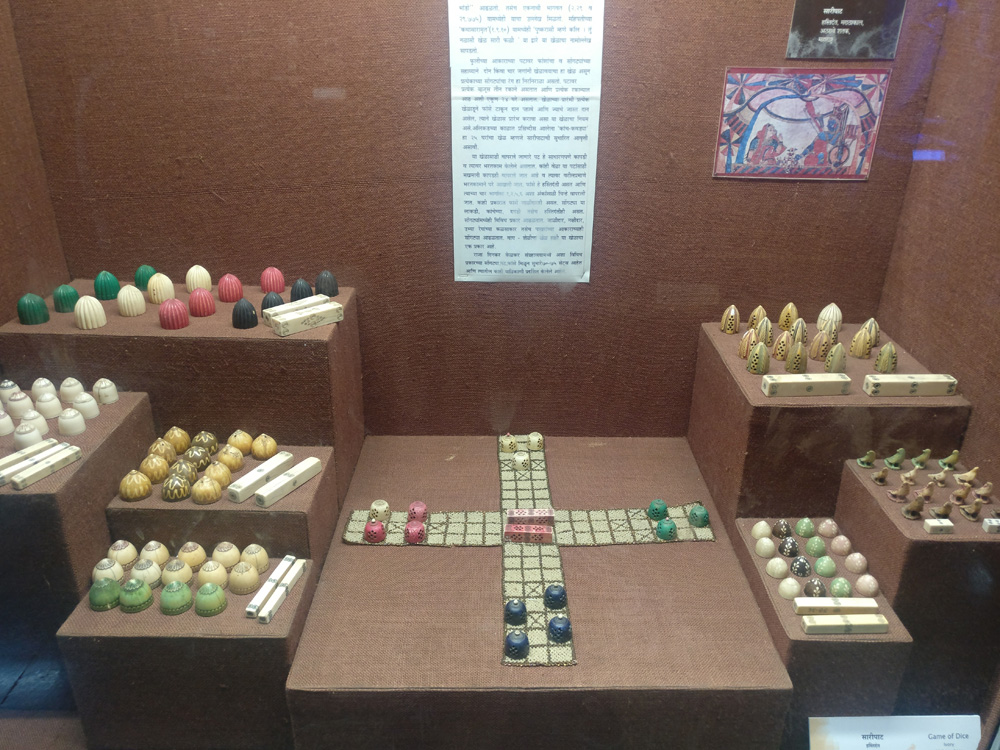
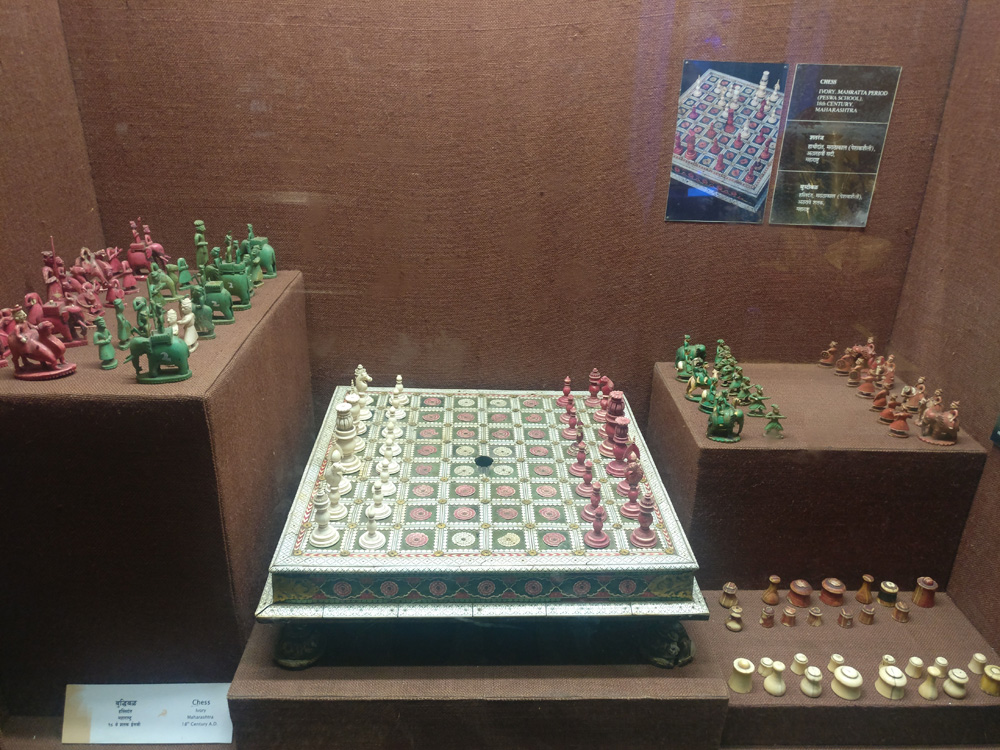
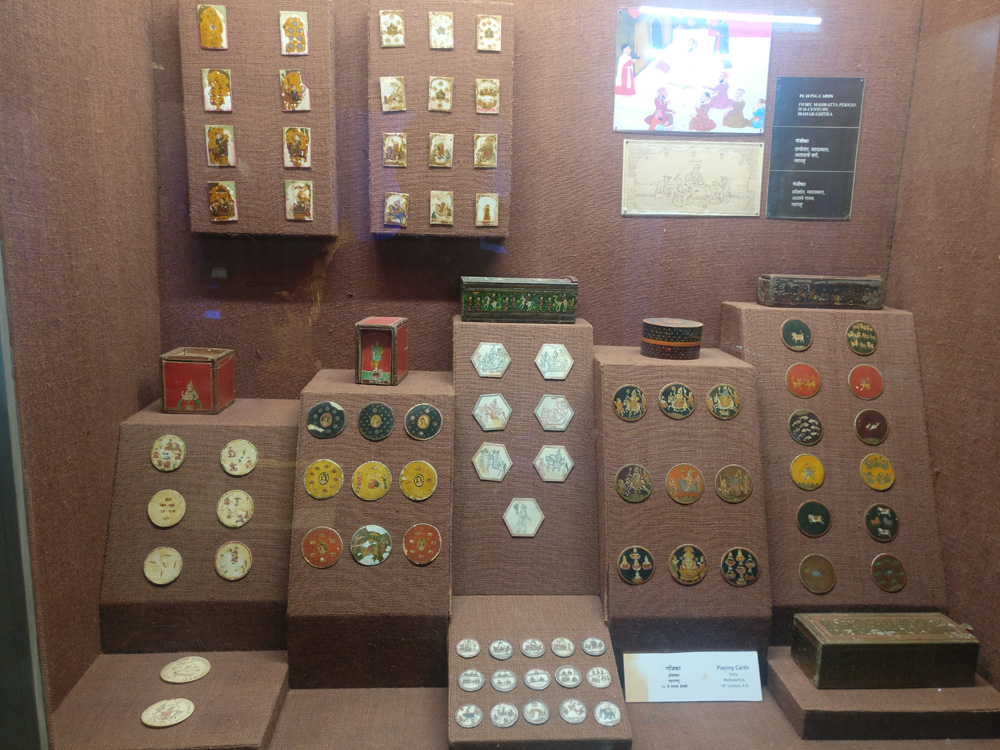
What you see above are 18th century "Playing Cards" from Maharashtra, made of Ivory! Damnnn I certainly don't wanna be the one carry a lot of deck! :P
Below is a chariot sculpture made from Ivory and Sandalwood, Mysore.
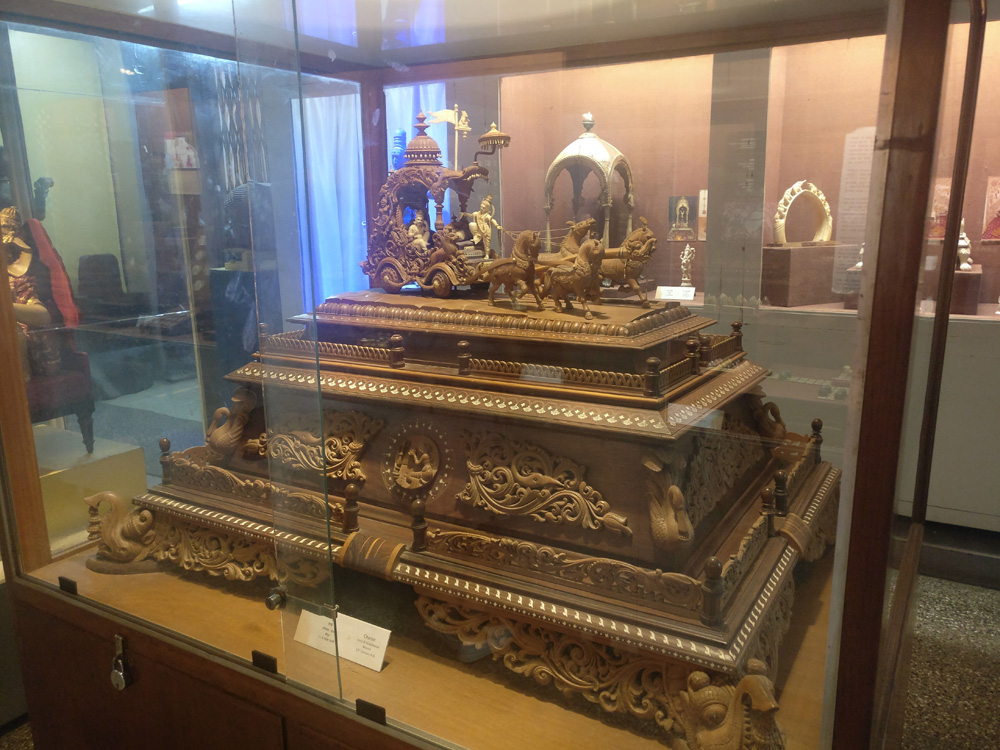
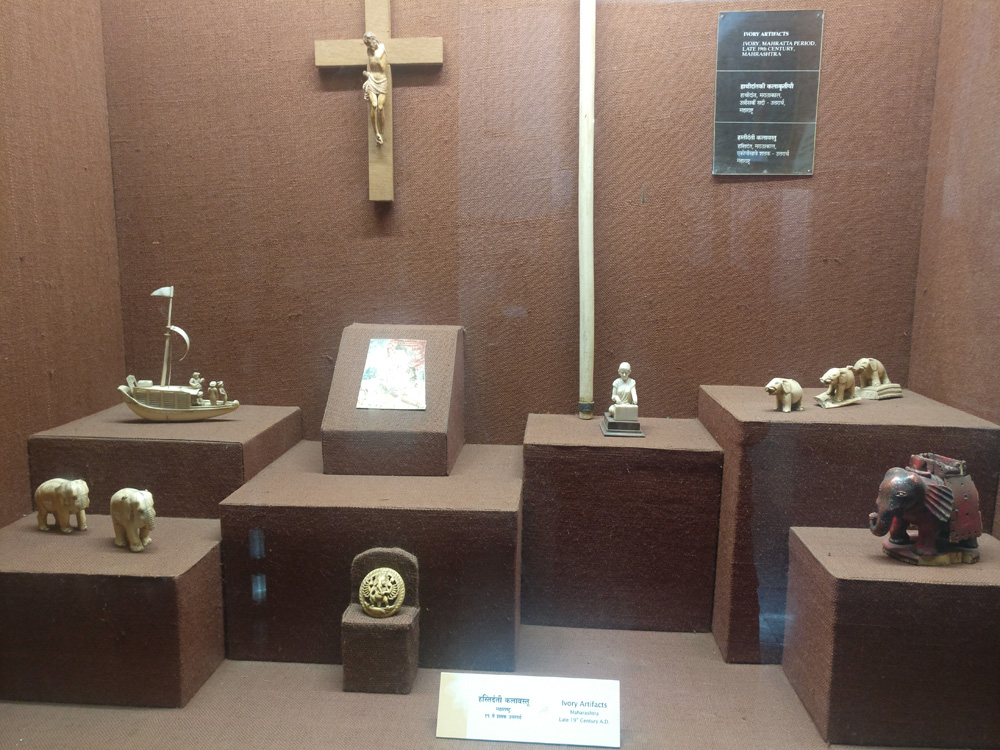
And then there was this, the miraculous Jesus who didn't require arms to stay on the cross :P
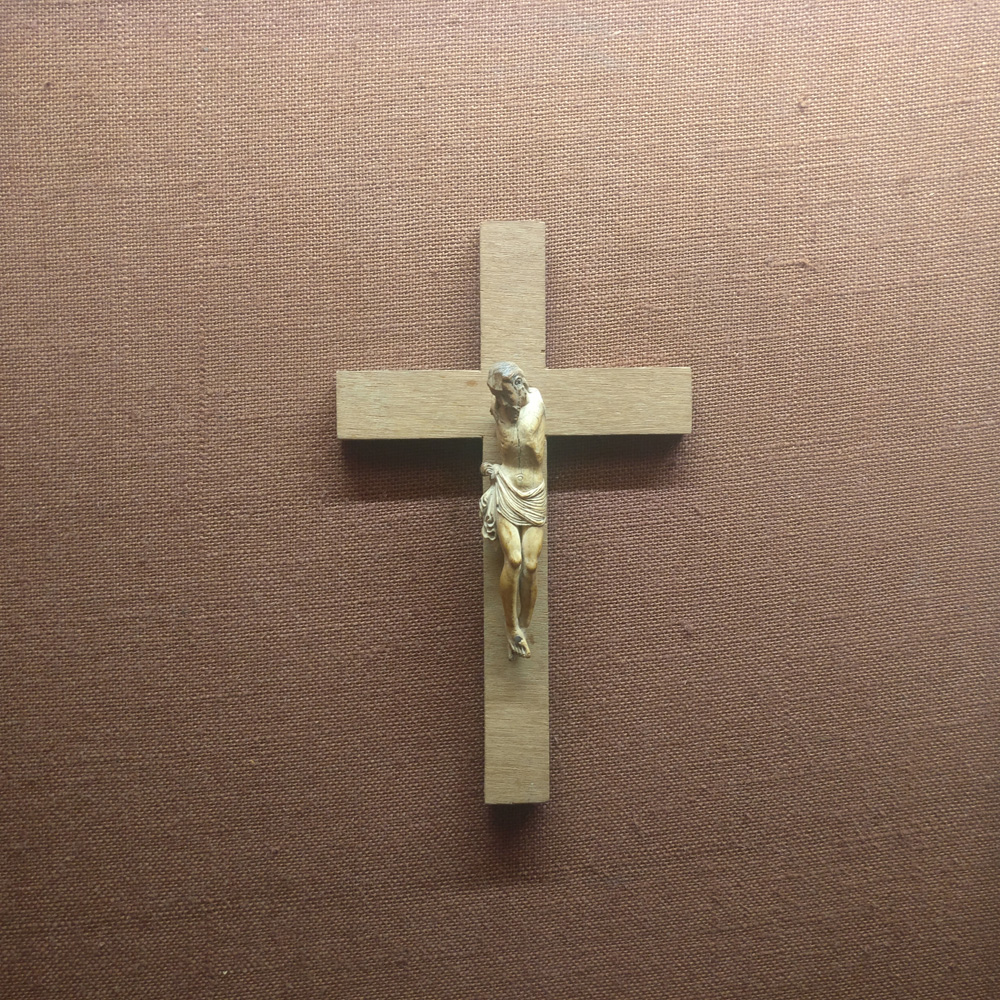
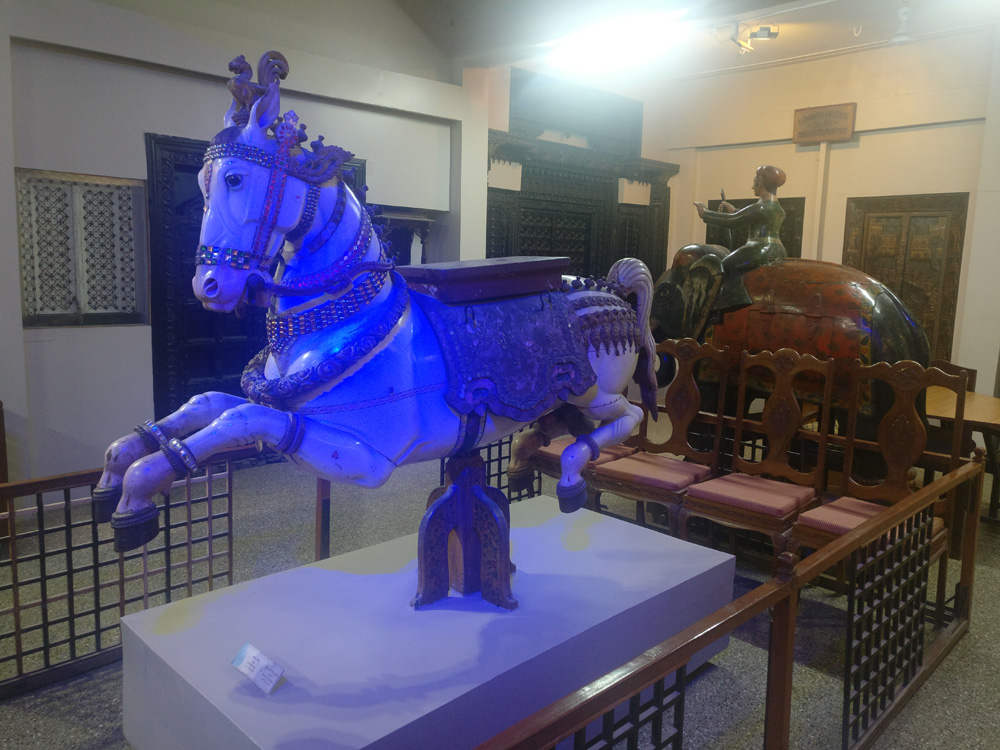
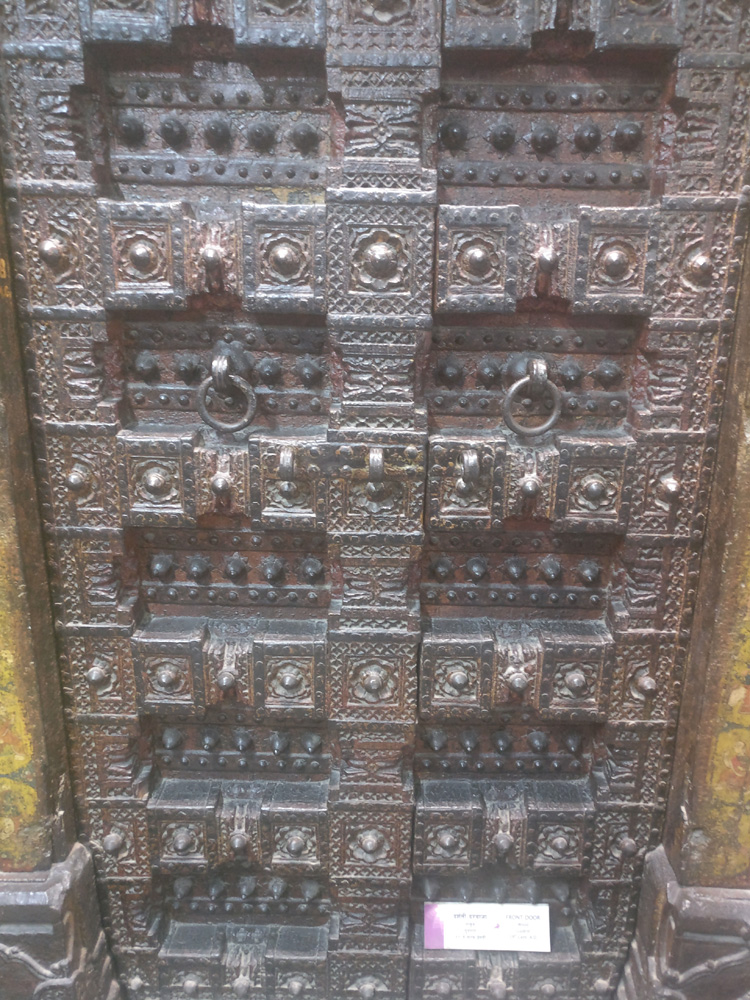
Different types of 19th century front doors were also displayed near the exit. It reminded me of Hodor so I cried :P
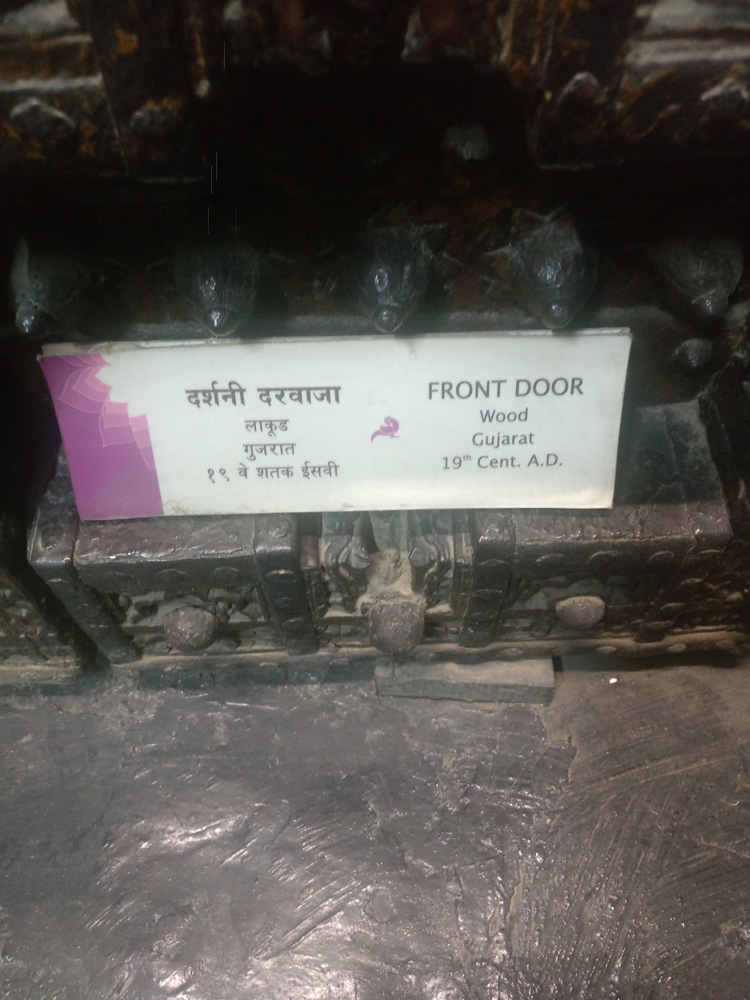
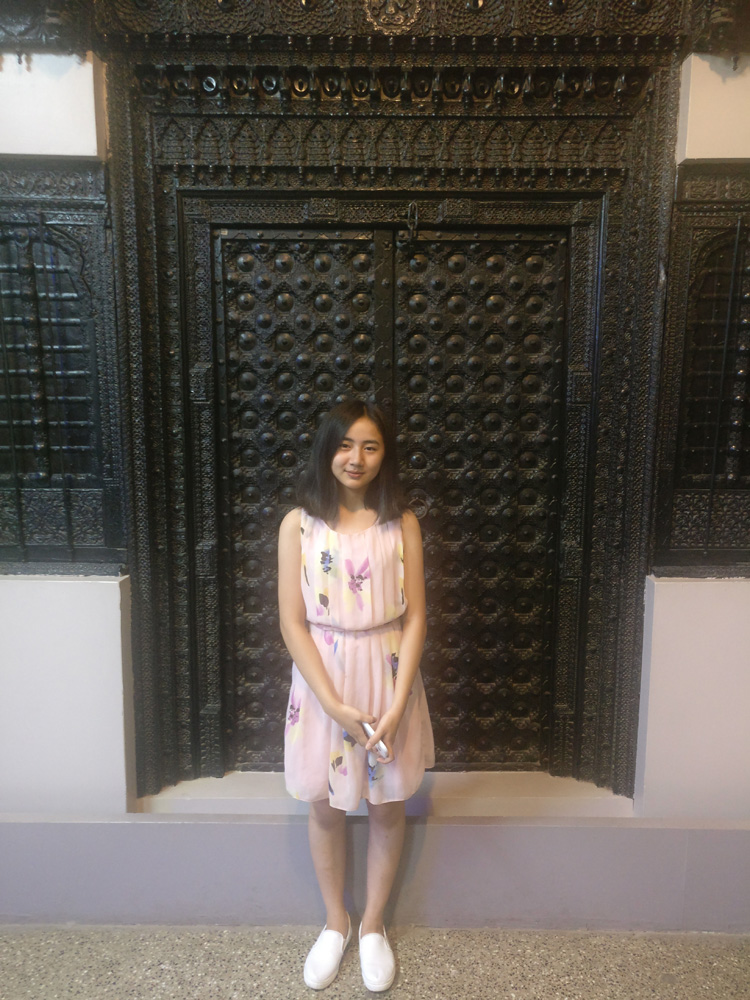
At the exit, there was this concave mirror, which my niece and I took to our advantage.
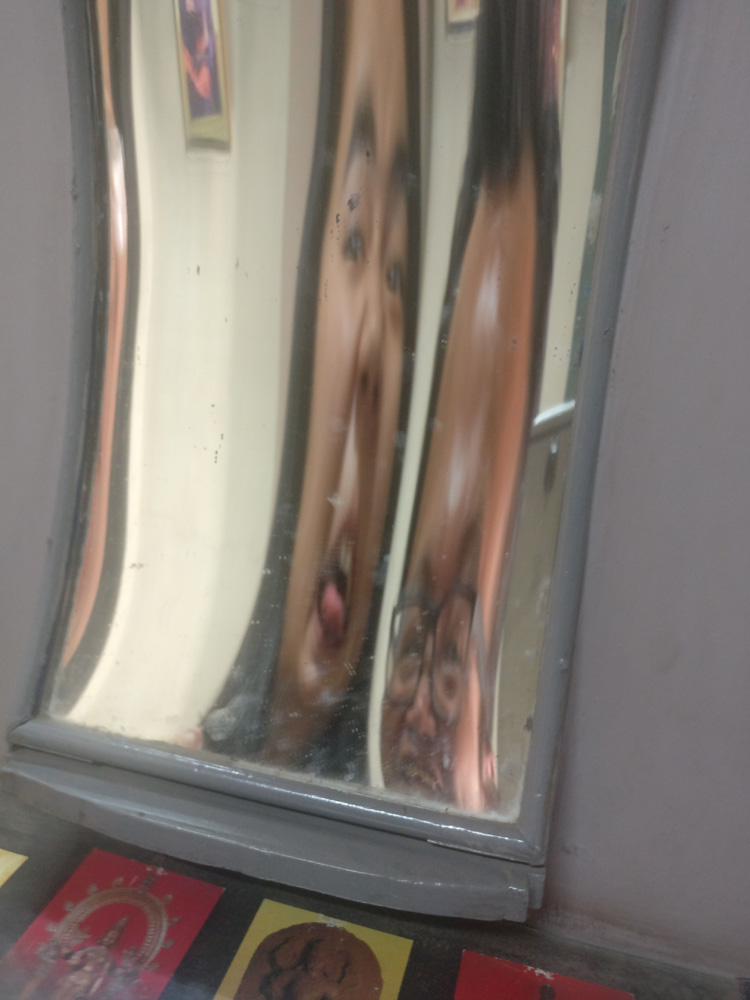
And with that, we ended our excursion. It was a wonderful experience indeed. By the way, there were hardly ANYBODY ELSE in the entire museum. If you look at all the photos above, you will not see any other visitor, it was just the three of us! I don't know whether to be happy or sad, I'm kinda happy because we had our own privacy and could do anything we wanted, but at the same time I'm also sad because people do not appreciate art or visiting museums anymore :(
My niece was the happiest, so I treated her to this awesome paani puri that makes Kolkata style puchkas and it was the perfect ending to a perfect outing.
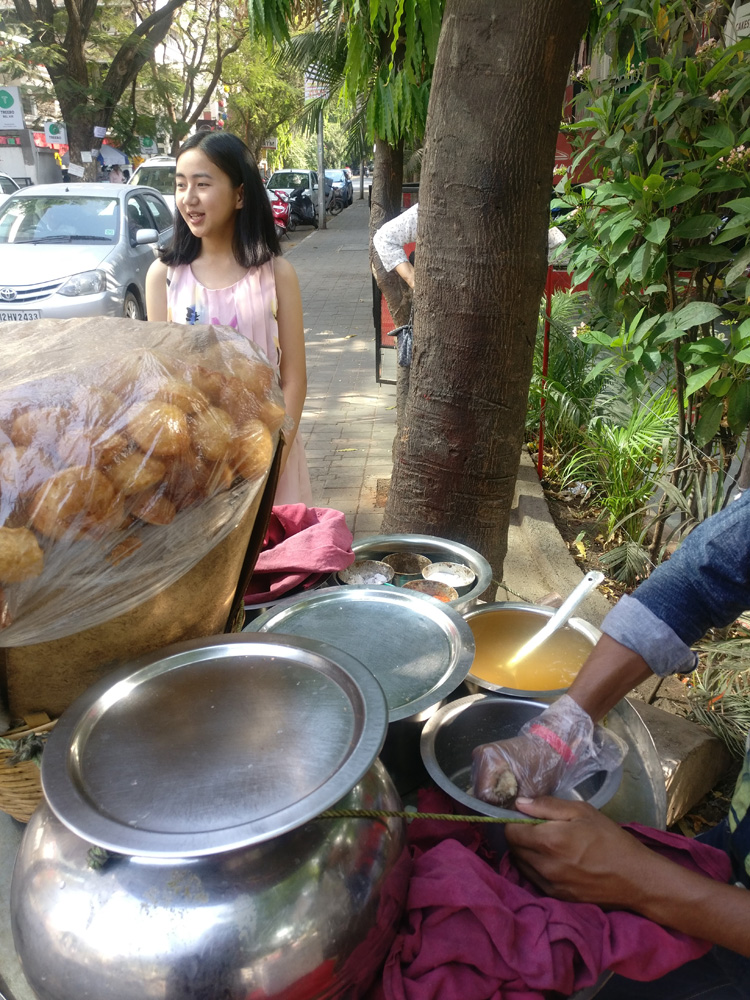
Cheers everyone.
1 comment:
Sir eagerly waiting for chapter 666
Post a Comment